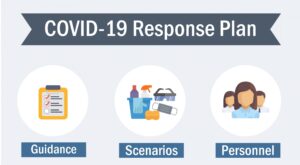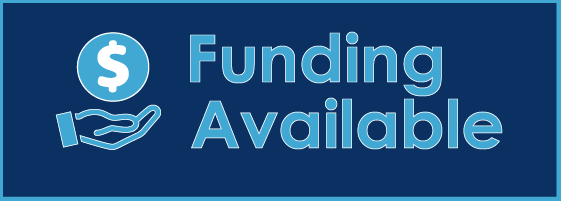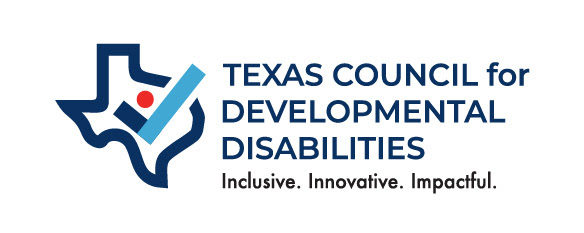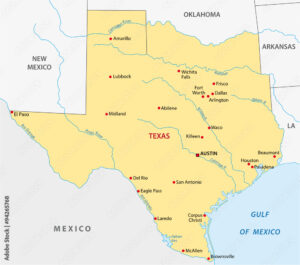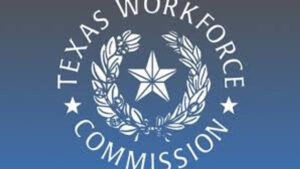Twogether Updates
ICF COVID-19 Response & COVID-19 FAQs Retired By HHSC-Dec. 13th, 2022
December 18th, 2022
HHSC Long-term Care (LTC) Regulation has retired the COVID-19 Response for ICF for Individuals with an Intellectual Disability or Related Conditions Response Plan and the ICF Frequently Asked Questions documents, effective Dec. 13, 2022.
Facilities can obtain guidance along with resources for infection prevention, control measures, and Personal Protective Equipment (PPE) through the Infection Prevention and Control Measures for Common Infections in LTC Facilities (PDF) and Infection Control Basics & Personal Protective Equipment for Essential Caregivers (PDF) documents published by HHSC.
These resources can also be found on the ICF Provider Portal page.
Program providers may reach out to LTCR Policy with questions at LTCRPolicy@hhs.texas.gov.
IPC Renewals Submissions, Transfers, How To Submit IPC into LTCOP
December 14th, 2025
LTCOP HCS and TxHmL Transfer Form Submission Sequencing Enhancements
On Dec. 18, 2025, the Texas Medicaid & Healthcare Partnership (TMHP) will update the Long-Term Care Online Portal (LTCOP) to improve form sequencing requirements and transfer processing for the HCS & TxHmL programs. These updates will help HCS and TxHmL waiver program providers and local intellectual and developmental disability authorities (LIDDAs) to submit forms accurately and reduce manual processing needs.
Hopefully, this should make transfers occur in a much more timely fashion with fewer errors in the transfer process and accountability for transfer steps by appropriate parties.
For more information, see the full posting at TMHP.com
Coming Soon: LTCOP HCS and TxHmL Transfer Form Submission Sequencing Enhancements | TMHP
Timely Submission of IPC Renewals
HHSC reminds HCS and TxHmL providers and local intellectual and developmental disability authorities (LIDDAs) to submit individual plan of care (IPC) renewals for individuals enrolled in the HCS and TxHmL waiver programs as early as program rules allow.
For HCS, renewal IPCs must be submitted at least 30, but no more than 60, calendar days before the current IPC end date.
TxHmL program providers and LIDDAs are encouraged to use the same timeframe for the submission of TxHmL renewal IPCs. Failure to do so can result in delays in processing and service authorization approval.
Important note for individuals transferring:
For a transfer involving two LIDDAs, the individual movement local authority reassignment form must be submitted and processed (status Processed/Complete or PCS Processed/Complete) prior to submission of the transfer IPC.
Guidance on HCS and TxHmL IPC submissions:
Note: There have been no changes in who is responsible for submitting IPCs since the migration of the HCS and TxHmL forms and claims from the legacy HHS Client Assignment and Registration system to the TMHP Long-Term Care Online Portal.
- For information on how to submit forms in the LTCOP portal, refer to Long-Term Care (LTC) Online Portal User Guides for Home and Community-based Services (HCS) and Texas Home Living (TxHmL) Waiver Programs: TMHP Learning (exceedlms.com).
Questions:
For policy questions, email your program policy inbox: HCS Policy or TxHmL Policy.
For issues encountered while submitting the IPC on the TMHP Long-Term Care Online Portal, please contact TMHP at 800-626-4117.
HHSC Complaint and Incident Intake Voicemail Reporting Option Ends on Dec. 31 (ICF/IID)
December 11th, 2022
The provider self-reporting voicemail option will be transitioned out of service on Dec. 31, 2022. Effective Jan. 1, 2023, provider self-reported incidents must be submitted using one of the methods indicated below:
This does not apply to HCS or TxHmL, only ICF and other LTC programs such as ALF’s, SNF’s, DAH’s…
- Online via Tulip
- Email ciicomplaints@hhs.texas.gov
- Call 800-458-9858 (available Monday–Friday, 7 a.m.–7 p.m.)
Please ensure that all initial self-reported incidents include the relevant information detailed in Provider Letter 18-20.
HHSC Retires LTCR Provider Investigations Policy Mailbox
December 11th, 2022
The Health and Human Services Commission (HHSC) created the Regulatory Services Division in 2017 as regulatory functions consolidated from the Department of Family and Protective Services, the Department of Aging and Disability Services and the Department of State Health Services. As part of this consolidation effort, effective Jan. 30, 2023, HHSC will retire the Provider Investigation policy mailbox at PIPolicy@hhs.texas.gov.
For questions about investigations, please use the Long-term Care Regulation Policy and Rules mailbox at LTCRPolicy@hhs.texas.gov.
New VPN (HCS/TxHmL) For TMHP Claims
December 10th, 2022
Know that effective December 22, 2022, all HCS/TxHmL providers will need to have migrated to Palo Alto VPN for billing claims!
IMPORTANT: Clarification on HCS/TxHmL IPC Status in “Pending DADS Review”
December 06th, 2022

Please see this alert that was just sent to the 3 IDD associations from HHSC
ISS (Individualized Skills & Socialization) Provider Webinar Recording
Recording of Individualized Skills and Socialization- Provider Licensing Application Process Webinar
December 06, 2022
If you were not able to listen to the November 30th webinar on navigating TULIP/applying for an ISS license, the recording of the webinar and the presentation are now posted. See below for details. Though assumed that persons who listen to the recording will also be able to download a certificate, HHSC has yet to confirm that
Listen to the webinar recording.
Read the Individualized Skills and Socialization webinar (PDF).
Any questions or requests for transcripts may be emailed to LTCR Policy.
Recording of Individualized Skills and Socialization Provider Webinar
HHSC hosted the Individualized Skills and Socialization Provider Webinar on July 19 and Aug. 22 for Home and Community-based Services, Texas Home Living, and Deaf Blind with Multiple Disabilities program providers.
This webinar — offered on Tuesday, July 19, from 2:30–4:30 p.m. and on Monday, Aug. 22, from 2–4 p.m. — provided information on the upcoming new service, individualized skills and socialization. Both webinars will provide the same information, so program providers can register for the time that works best for them.
Below are the links to the recorded sessions from July 19th and 22nd. Please just click, register, and the presentation will begin.
Register now for the July 19 webinar.
Register now for the Aug. 22 webinar.
Handout: Read the Individualized Skills and Socialization Provider Webinar (PDF).
Email HCS Policy and LTCR Policy for questions and to request a transcript of the webinar or ask questions.
Email questions about the webinar to your program policy inbox:
July 19 Individualized Skills and Socialization Provider Webinar Recording Available
A recording of the July 19 Individualized Skills and Socialization Provider Webinar with HHSC Long Term Care Regulation and HHSC Long Term Services and Supports is available for those who could not attend. The webinar recording and slides have been posted to the Individualized Skills and Socialization webpage, the HCS and TxHmL Webinars & FAQs webpage, and the DBMD Provider Training, Webinars and Podcasts webpage.
Read the Individualized Skills and Socialization Provider Webinar (PDF).
Email HCS Policy and LTCR Policy for questions and to request a transcript of the webinar.
Pre-enrollment Site Visit Required for HCS and TxHmL Providers That Enrolled Through PEMS
December 1st, 2022
Home and Community-based Services and Texas Home Living waiver program providers that enrolled through the Texas Medicaid and Healthcare Partnership Provider Enrollment and Management System will be subject to a pre-enrollment site visit from TMHP. Read the full alert.
Home and Community-based Services (HCS) and Texas Home Living (TxHmL) waiver program providers that enrolled through the Texas Medicaid & Healthcare Partnership (TMHP) Provider Enrollment and Management System (PEMS) will be subject to a pre-enrollment site visit from TMHP.
The pre-enrollment site visit is required for enrollment in Texas Medicaid. The HCS program site visits will be conducted at the locations listed on the enrollment application, including the business office and any locations where clients receive residential assistance services.
A TMHP site visit coordinator will reach out through email or phone to schedule a visit. If the TMHP site visit coordinator is unable to reach the provider, then TMHP will conduct an unannounced site visit.
If providers have questions, contact the TMHP LTC Help Desk at 800-626-4117 (select option 1 and then option 7)
A few items I want to make you aware of if you are a new HCS/TxHmL Provider Applicant:
- They may want to know what services you intend to use to bill via TMHP.
- i.e. TMHP billing specialist, or billing agency, someone at your agency using only TMHP or also specific outside software to make it easier to monitor and complete your billing (i.e. Millen Pro Billing services and/or software), or via Electronic Health Records for instance that have TMHP and EVV billing capabilities (TaskMaster Pro, TMHP, etc..)
- You do not have to have a group home when they visit before you have a contract. You don’t have clients yet and HCS does not require you to purchase or rent a home prior to receiving your contract. (Adult Mental Health HCBS program does require you have a home)
- You do not have to have a rented business office or “storefront”. You can use your “home office”. But you may need to explain how you intend to see your clients, meet potential families and clients or do staff trainings and still maintain privacy. Perhaps you can ask your local LIDDA’s if they have meeting spaces available to the providers, or you may use virtual office space, hotel conference/meeting rooms, and any staff training for group homes that will happen in the group home for example..
- Make sure if it is a home office, that it really is a delegated space for your office.
- They may want to know how you plan to maintain privacy and security with client records electronically stored, transferred, shared, or disposed of.
- They may request a few policies (security and privacy inquiry form policies and procedures, complaint process, etc..) please contact me if you want a list of the rest or if you want to hire us to provide some of them for you. Twogether Consulting Ph: 512-294-8032
Determination of Intellectual Disability Information Update

December 1st, 2022
Texas Health and Human Services Commission (HHSC) updated the following information regarding the Determination of Intellectual Disability (DID):
- DID Best Practice Guidelines website
- DID Best Practice Guidelines (PDF)
- Become a Certified Authorized Provider to Conduct a DID website
For more information, email the IDD Services Team.
LTC Online Portal Enhancements for HCS and TxHmL Waiver Programs- Starting December 2022
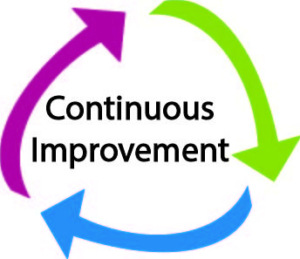
December 1st, 2022
Overview of Upcoming LTC Online Portal Enhancements for HCS and TxHmL Waiver Programs
On December 12, 2022, the Texas Medicaid and Healthcare Partnership will implement several enhancements to the TMHP Long-Term Care Online Portal. After the enhancements are implemented, existing information and training materials will be updated. Read full alert.
-IPC Forms
-Termination Forms
-Pre-Enrollment Forms
-Individual Movement (IMT) Local Authority (LA) Reassignment Forms
-Provider Location Update (PLU) Forms
Other System and Form Enhancements
The Inactivate and Correct this Form buttons on the 8578 Intellectual Disability/Related Condition (ID/RC) Purpose Code (PC) 2 and Initial Enrollment IPC forms will be available only to HHSC staff.
This will decrease the potential for pre-enrollment and enrollment forms to get out of sync, as well as decreasing unnecessary form inactivations.
Account Preparation and Additional Resources
To prepare for these changes, HCS and TxHmL providers and LIDDAs that do not have an LTCOP account need to create an administrator or user account. Providers and LIDDAs can find instructions for creating an account in the TMHP Account Setup for HCS and TxHmL Waiver Programs Quick Reference Guide (QRG).
Additionally, providers and LIDDAs are encouraged to visit the TMHP 1915(c) Waiver Programs web page for recent news, reference materials, education, and bulletins.
For more information, contact the TMHP LTC Help Desk at 800-626-4117 (select option 1 and then option 7).
October 23rd, 2022
LTC Portal Enhancements: Coming Soon!
Beginning in December 2022, several enhancements will be implemented for the Texas Medicaid & Healthcare Partnership (TMHP) Long-Term Care (LTC) Online Portal. The enhancements will improve form submission and portal functionality. Information about these upcoming changes will be available in future articles on the TMHP 1915(c) Waiver Programs web page.
Account Preparation and Additional Resources
To prepare for these changes, Home and Community-based Services (HCS) and Texas Home Living (TxHmL) providers and local intellectual and developmental disability authorities (LIDDAs) that do not have an LTC Online Portal account need to create an administrator or user account. Providers and LIDDAs can find instructions for creating an account in the TMHP Account Setup for HCS and TxHmL Waiver Programs Quick Reference Guide (QRG), which is available in the TMHP Learning Management System (LMS), and on the TMHP website.
Note: To access the LMS, register for the LMS by clicking the Don’t Have an Account? Sign Up Here button beneath the login field.
(FYI-This includes HCS/TxHmL provider applicants who are going to have their contracts approved soon to begin services. If you haven’t signed up for the LTC Portal yet, please do so!)
Additionally, TMHP encourages providers and LIDDAs to visit the TMHP 1915(c) Waiver Programs web page for recent news, reference materials, education and bulletins.
For more information, contact the TMHP LTC Help Desk at 800-626-4117, option 1, then option 7.
American Rescue Plan Act (ARPA): Provider Retention Payments Regarding HCS/TxHmL Billing Claims from March 2022-August 2022
November 14th, 2022

Don’t forget: HHSC has extended the time for any providers eligible for these ARPA payments to complete the attestation, so that the initial and final reports are not due, until 30 calendar days after the end of the COVID Public Health Emergency (PHE).
July 4th, 2022
American Rescue Plan Act (ARPA) Home and Community-Based Services (HCBS) Provider Retention Payments
Initial report is now due by August 15, 2022.
The Texas Health and Human Services Commission (HHSC) implements American Rescue Plan Act (ARPA) Home and Community-Based Services (HCBS) Provider Retention payments.
HHSC is providing funds to agency providers and consumer-directed services employers to support recruitment and retention efforts for direct care staff delivering HCBS services. Payments made under this section can include one-time financial compensation directed toward direct care staff, including lump-sum bonuses, retention bonuses, and paid time off to receive a COVID-19 vaccination or to isolate after receiving a positive COVID-19 test.
Providers who may be eligible to receive funds are:
- 1915 (c) Texas Home Living (TxHmL) Provider Agency
- 1915 (c) Home and Community-Based Services (HCS) Provider Agency
- 1915(i) Home and Community-Based Services – Adult Mental Health (HCBS – AMH) Provider Agency
- 1915 (c) Home and Community-Based Services (HCS) CDS Employer
- 1915 (c) Texas Home Living (TxHmL) CDS Employer
- see the HHSC HCBS website for other types of additional information on ARPA funds.
HHSC is providing time-limited reimbursement increases to strengthen and stabilize the HCBS workforce. Temporary rate increases will be made on eligible HCBS service claims with dates of service between March 1, 2022, and August 31, 2022.
Providers receiving temporary rate increases must complete an attestation and complete an initial report by August 15, 2022.
HHSC will announce the due date for the final report in a follow-up notice. Providers will have at least 30 days to complete the final report.
Providers who fail to complete the required attestation and reporting will be subject to recoupment of HCBS ARPA funds.
Consumer Directed Services (CDS) Employers and Financial Management Services Agencies (FMSAs)
The CDS participant, as the employer of record, may choose to submit the required attestation and reports or work with the Financial Management Services Agency (FMSA) to submit the attestation and reports on the CDS participant’s behalf. FMSAs may also reach out to the CDS participants to offer assistance in submitting the attestation and reports. FMSAs can submit the required information for multiple CDS participants in the FMSA HCBS ARPA Attestation and Initial Report Template. Pursuant to Texas Administrative Code rule 1 TAC 355.207(c)(4), to be eligible for the temporary rate add-on, providers must submit required reports regarding the use of funds and provide data to document vacancy rates in direct care staff and other indicators. If completing the attestation and reports on behalf of a CDS participant, FMSAs should work with the CDS participant to collect all required data. The deadline for the attestation and initial reporting has been extended to August 15, 2022.
Information regarding ARPA HCBS Provider recruitment and retention payments is available on the HHSC Provider Finance website.
June 2nd, 2022
Don’t Forget!
American Rescue Plan Act (ARPA) Home and Community-Based Services (HCBS) Provider Retention Payments Attestation and Initial Reporting
Initial report is due by July 1, 2022.
The Texas Health and Human Services Commission (HHSC) implements American Rescue Plan Act (ARPA) Home and Community-Based Services (HCBS) Provider Retention payments.
HHSC is providing funds to agency providers and consumer-directed services employers to support recruitment and retention efforts for direct care staff delivering HCBS services. Payments made under this section can include one-time financial compensation directed toward direct care staff, including lump-sum bonuses, retention bonuses, and paid time off to receive a COVID-19 vaccination or to isolate after receiving a positive COVID-19 test.
HHSC is providing time-limited reimbursement increases to strengthen and stabilize the HCBS workforce. Temporary rate increases will be made on eligible HCBS service claims with dates of service between March 1, 2022, and August 31, 2022.
Providers receiving temporary rate increases must complete an attestation and complete an initial report by July 1, 2022.
HHSC will announce the due date for the final report in a follow-up notice. Providers will have at least 30 days to complete the final report.
Providers who fail to complete the required attestation and reporting will be subject to recoupment of HCBS ARPA funds.
Information regarding ARPA HCBS Provider recruitment and retention payments is available on the HHSC Provider Finance website.
May 19th, 2022
HCS/TxHmL providers:
Please be aware of the following for claims being paid from March 1st, 2022-August 31st, 2022 in TMHP: There are new Procedure/Billing Codes in TMHP that reflect the ARPA short-term funding as retention payments you may be receiving for these claims billed during this time period. If you are seeing new or different codes than you are used to, listed when you pull up “paid” claims, then you are receiving ARPA Retention payments and will be responsible for documenting how these funds were used and reporting this by July of 2022, or you are subject to recoupment from the MCO’s. (Example: M0115, M0116, M0117…)
See rates and new codes listed in link below:
https://acrobat.adobe.com/link/track?uri=urn:aaid:scds:US:cca5939a-6173-346e-9fc2-3409490a5447
Personally, I was under the assumption that providers would have to request this assistance if they wanted it, meaning they would choose whether they utilized this funding or not. Apparently not necessarily as some providers have noted this is showing up on their payments. From everything I am reading, the provider letters from HHSC do seem to indicate every provider will receive the funding.
Meaning additional (ARPA) monies that the provider is receiving in claim payments for that time period, will need to be accounted for, and reporting on how funds were utilized will need to happen and be sent into HHSC. Some providers are noticing a difference in the regular rates they submitted claims for when they look at their “paid claims”. If the provider uses the ARPA intended, attestation and reporting to HHSC must occur.
If the HCS/TxHmL provider chooses not to utilize the added-on payments to the normal rates, I believe they will need to hold back/save these additional amounts for each claim paid from March to August of 2022, in order to pay them back at a later date. If these ARPA funds are utilized, then the HCS/TxHmL Provider will need to complete a report by July of 2022. I believe, to HHSC by the provider, or they will have to keep it in an account and saved for repayment/recoupment when requested by the MCO’s if I understand correctly. I will keep you posted! Also, please look for the additional FAQ’s to be published on May 23rd, 2022 for hopefully important answers to the TMHP questions and issues many providers have expressed with entering IPCs in particular (especially revisions) entering billing claims, and only getting paid for part of billing claims submitted.
Here Are Just Some Of The FAQ’s HHSC Recently Published May 5th, 2022 (specifically related to this issue I have noted above)
Q: What are the ARPA HCBS Provider Retention Payments?
A: HHSC’s ARPA HCBS spending plan included recruitment and retention payments for providers delivering attendant and direct care HCBS for retention bonuses or other activities. HHSC’s spending plan requires providers to use at least 90 percent of HCBS ARPA funds for one-time financial compensation for their direct care workforce, including, but not limited to, lump-sum bonuses, retention bonuses, and paid time off to receive a COVID-19 vaccination or to isolate after receiving a positive COVID-19 test.
Q: What Services are eligible for Provider Retention Payments?
A: HCBS ARPA temporary rate add-on will be applied to HCBS personal attendant and nursing services as defined in 1 TAC 355.207. A list of eligible services is defined in Section 355.207(b)(1). An updated service list and fee schedule is available on the Provider Finance Homepage.
Q: What identifying information do I need to include with my attestation and required reports?
American Rescue Plan Act (ARPA) Home and Community-Based Services (HCBS) Provider Retention Payments
The Health and Human Services Commission (HHSC) American Rescue Plan Act (ARPA) Home and Community-Based Services (HCBS) Provider Retention Payments is part of the HHSC APRA Spending Plan.
The HCBS ARPA Retention Payments will be distributed as a temporary rate add-on to agency providers and consumer-directed services employers to support recruitment and retention efforts for direct care staff delivering HCBS services. Eligible providers can use the temporary add-on to provide one-time financial compensation directed toward direct care staff, including lump-sum bonuses, retention bonuses, and paid time off to receive a COVID-19 vaccination or to isolate after receiving a positive COVID-19 test.
HHSC adopted a new Texas Administrative Code rule 1 TAC 355.207 governing the HCBS ARPA Retention Payments, including the attestation and reporting requirements. Eligible providers who receive the add-ons but fail to complete the required attestation and reporting will be subject to recoupment of the associated payment add-ons.
Click here to submit the required attestation and initial report due July 1, 2022.
HHSC will provide additional information regarding the due date for the Final report at a later date. Providers will have at least 30 days to submit the final report.
- View HCBS ARPA Eligible Services and Rate Add-on Fee Schedule (.pdf)
- View HCS and TxHmL Rate Add-on Fee Schedule for Bill Codes effective after 05-01-2022 (.pdf)
- View Provider Information Letter IL-2022-30 (.pdf)
- View HCBS ARPA Frequently Asked Questions (.pdf)
Please contact the HHSC Provider Finance Department, Long-term Services and Supports Customer Information Team at PFD-LTSS@hhs.texas.gov or (512) 867-7817 if you have questions regarding HCBS ARPA Provider Retention Payments.
TMHP Enhancements Release Dates
November 11th, 2022
TMHP Enhancements
According to HHSC the enhancements (improvements) planned for release this month will most likely be posted later this week or early next week. These posted enhancements will not be effective until Dec. 12, 2022.
HHSC will go over these enhancements in depth at the December 8th, 2022 Migration Webinar
September 23rd, 2022
There are 2 sets of HHSC and TMHP ‘enhancements’ (or ‘fixes’ or ‘improvements’ to the system) to be released in the near future. HHSC has said that the first set of ‘enhancements’ will be released November 4, 2022, and the second set will be released in June of 2023.
Public Health Emergency (PHE) Status
November 11th, 2022
At this time, according to HHSC the PHE is set to end on January 11, 2023. Currently, it is not known whether it will be extended beyond January 11th, 2022. It is possible providers will be notified this week in some alerts if PHE will be extended beyond January 11, 2023.
Why is this important?
*This is important as COVID-19 flexibilities may end and Medicaid status may be lost for those individuals in our waiver and ICF programs where provider has not responded to previous warning letters from CMS that their Medicaid status will not automatically be renewed without reapplying.
THERAP Information and Resources
Previous Webinars Hosted ByTwogether Consulting: Therap during our free resource webinar series below. Just click on the links and register.
October 2022
https://attendee.gotowebinar.com/recording/2347988816141652494
August 2022
https://attendee.gotowebinar.com/recording/1388286687336697103
If you need assistance with your current Therap services or with information on getting these services, please contact:
Calvin Christensen(Business Development Consultant at Therap Services, LLC)
Here is his LinkedIn page
https://calendly.com/calvin-christensen/system-demonstration?back=1&month=2022-10

Other Resources
Overview of new pharmacy interface feature with orders, MARS, etc…
Overview of GER Reports (Incidents, Injuries, Med Errors…)
https://help.therapservices.net/app/general-event-reports
https://www.therapservices.net/
For more information on Therap please see link below:
https://www.therapservices.net/products/comprehensive-esolution-for-texas-providers/

Data-Driven:
Person-centered solutions your organization can use to support agency workflows, communication, compliance, organizational outcomes, and revenue management
TaskMaster Pro Information & Resources
October 31st, 2022

Previous Webinars Hosted ByTwogether Consulting: TaskMaster Pro (TMP) during our free resource webinar series below.
Just click on the links and register.
October 20th, 2022
https://attendee.gotowebinar.com/recording/1488497278022599682
We couldn’t find an innovative IDD Practice Management software that focused on delivering better care, so we built one!
Software features for Service Providers
Our IDD software is designed by Service Providers and built for Service Providers. Every day we face the same challenges you do in providing care to the people in our IDD community. So that delivering the best care possible can be the focus, we designed TMP to be easy to use, intelligent, and robust.
Care professionals are led quickly through documentation processes with platform-assisted data completion. No repetitive entry of information, it’s fast and accurate. Compliance data is gathered and tracked simultaneously. This means compliance reporting can be completed at the push of a button. Thus, caregivers spend more time giving care and less time on paperwork.
Have more questions? Please schedule a free demo below.
And don’t forget to mention if you found out about us through Twogether Consulting!
Monthly Webinars on Migration of CARE to TMHP
January 15th, 2023
Jan. 11th TMHP LTC Migration Webinar
- R & S Video Series for LTC Providers & FMSAs: There are 3 videos related to this topic:.
October 23rd, 2022
Oct. 5 TMHP LTC Portal for HCS/TxHmL Providers and FMSAs Webinar Recording Available
A recording of the Oct. 5 TMHP LTC Portal for HCS/TxHmL Providers and FMSAs Webinar is available for those who could not attend.
The webinar recording and slides have been posted to the HCS and TxHmL Webinars & FAQs webpage.
For questions, email TxHmL Policy.
October 13th, 2022
Monthly Meetings/Webinars On Migration To TMHP LTC Portal for HCS/TxHmL/FMSA’s
Medicaid and CHIP Services (MCS) will begin hosting monthly meetings for Providers and Financial Management Services Agencies (FMSAs) who use the Long-Term Care (LTC) Online Portal for the Home and Community-based Services (HCS) and Texas Home Living (TxHmL) waiver programs, beginning in October will be held to discuss trending issues, share solutions established to address barriers providers and LIDDAs are experiencing, answer questions, etc.
Texas Medicaid & Healthcare Partnership (TMHP) and Health and Human Services Commission (HHSC) staff from the following departments will be available to provide information and answer questions:
- Program Eligibility and Support (PES).
- Utilization Review (UR).
- Provider Claims Services (PCS).
- Contract Administration & Provider Monitoring (CAPM).
- Local Procedure Development and Support (LPDS).
Save the Dates
The webinars will be held on the following dates. We encourage Providers and FMSAs to invite staff who use the LTC Online Portal for HCS and TxHmL programs.
- October 2022: Wednesday, Oct. 5, 1–2 p.m. Register for the webinar.
- Here is a copy of the handout from October 5th, 2022, if you missed the webinar. The recording of that session will be posted in the near future.
- November 2022: Wednesday, Nov. 9, 10–11 a.m. Register for the webinar.
- December 2022: Thursday, Dec. 8, 1–2 p.m. Register for the webinar.
Standing Meeting Agenda
- Trending issues – discuss trending issues and solutions to increase successful processing of forms.
- Updates on LTC Online Portal for HCS and TxHmL – provide relevant updates.
- Questions and Answers – HCS and TxHmL Providers and FMSAs will have the opportunity to ask questions* regarding LTC Online Portal for HCS and TxHmL.
*To comply with HIPAA requirements, questions that include any identifying information for a specific individual will not be allowed during the monthly meetings.
Email Questions to TxHmL Policy.
Texas Culture Change Coalition Conference-“A Day Focused On Person-Centered Senior Care” Nov. 3rd, 2022-Austin, Tx
October 16th, 2022
Register for Texas Culture Change Coalition Conference
The Texas Culture Change Coalition will host their in-person fall 2022 conference, “Texans Coming Together for Residents, for Staff, for All!”
This year’s theme is “A Day Focused on Person-Centered Senior Care.”
Nov. 3
8 a.m.–5 p.m.
Commons Conference Center (J.J. Pickle Research Campus)
10100 Burnet Road, Bldg. 137
Austin, TX 78758
Continuing education credit for multiple disciplines will be provided for this event.
For more information, visit the Texas Culture Change Coalition website.
HCS Provider Response & Visitation Emergency Rules: COVID-19-Update 2022
October 17th, 2022
HHSC HCS Program Provider Response to COVID-19 Emergency Rule Expired Oct. 14
The emergency rule for Home and Community-based Services waiver program providers that contain the HCS Program Provider Response to COVID-19 Emergency Rule expired Oct. 14.
The following rule expired Oct. 14:
- 40 Texas Administrative Code Section 9.198 – Program Provider Response to COVID-19 Emergency Rule
HCS program providers must continue to comply with visitation requirements for essential caregivers and clergy in a disaster located in TAC Chapter 570 as well as all other applicable rules and certification principles.
See Section 9.198 below:
40 Tex. Admin. Code § 9.198
July 11th, 2022
Provider Letter 2022-13, Version 2: Petition To Suspend Essential Caregiver Visits
HHSC issues PL 2022-13, Version 2 with additional information regarding how a facility or program provider may petition HHSC to suspend in-person essential caregiver visits.
Read PL 2022-13, Version 2 here.
“A facility or program provider may petition HHSC to suspend in-person
essential caregiver visits for no more than 7 consecutive calendar days
if in-person visitation poses a serious community health risk. To
petition for a suspension of in-person essential caregiver visits, a
facility or program provider must submit a request to their Regional
Director (RD) by email. The contact information for each Regional
Director is available on the Long-term Care Regulatory Regional
Contact Numbers website. A facility or program provider may request
an extension from HHSC to suspend in-person essential caregiver
visitation beyond the original request, but HHSC may not approve an
extension that exceeds 7 days. HHSC may deny a petition to suspend
in-person essential caregiver visits if HHSC determines that in-person
essential caregiver visits does not pose a serious community health
risk.”
July 5th, 2022
Updated HCS/TxHmL COVID-19 Response Plan, FAQ Documents- June 24th
HHSC Long-term Care Regulation updated the COVID-19 Response Plan and FAQ documents on June 24. The updates remove instructions on how to ask for emergency staffing from HHSC.
Read the revised COVID-19 Response for HCS Providers (PDF).
Read the revised Updated COVID-19 FAQs for HCS and TxHmL Providers (PDF).
May 7th, 2022
Updated HCS/TxHmL COVID-19 Response Plan, FAQ Documents-May 5th
HHSC Long-term Care Regulation updated the COVID-19 Response Plan and FAQ documents on May 5. The updates remove instructions on how to ask for emergency staffing from HHSC.
Read the revised COVID-19 Response for HCS Providers (PDF).
Read the revised Updated COVID-19 FAQs for HCS and TxHmL Providers (PDF).
February 20th, 2022
Updated HCS COVID-19 Response Plan and FAQ Documents – Feb. 18
HHSC Long-term Care Regulation updated the HCS COVID-19 Response Plan and FAQ documents.
Read the revised COVID-19 Response for HCS Providers (PDF).
Read the revised Updated COVID-19 FAQs for HCS and TxHmL Providers (PDF).
Updated COVID-19 Provider Response and Visitation Emergency Rules for HCS Providers – Feb. 17
HHSC Long-Term Care Regulation published revised HCS COVID-19 Provider Response to COVID-19 and Expansion of Reopening Visitation Rules (PDF). HCS providers must now screen individuals and staff per HHSC guidance.
HHSC Long-Term Care Regulation published revised COVID-19 Expansion of Reopening Visitation Emergency Rules. They are for Intermediate Care Facilities for Individuals with an Intellectual Disability or Related Conditions program providers. HHSC removed the following language:
“If an executive order or other direction is issued by the Governor of Texas, the President of the United States, or another applicable authority, that is more restrictive than this rule or any minimum standard relating to a facility, the facility must comply with the executive order or other direction.”
The rules became effective Feb. 17, 2022.
January 7th, 2022
HCS and TxHmL COVID-19 Response Plan Updated – Jan. 7th, 2022
HHSC has revised the HCS and TxHmL COVID-19 Response Plan in response to the most recent CDC guidance.
September 23rd, 2022
HCS COVID-19 Mitigation & Expansion of Visitation Rules:
Revision Response Plan
COVID-19 Response Plan (PDF) in response to the revised HCS and TxHmL COVID-19 Mitigation and Visitation rules
Update: April 17th, 2021
HHSC Publishes HCS Expansion of Reopening Visitation Rules
Original Published: March 25th, 2021
3.0 HCS Expansion of Reopening Visitation Rule
To read more, please click on the link below:
https://documentcloud.adobe.com/link/track?uri=urn:aaid:scds:US:a7d8cd88-7334-4f8b-89b3-5876693ceb1a
*** Please Don’t Forget To Update Your Policies & Procedures Based On The Changes. Feel Free To Contact Twogether Consulting For Assistance! Info@twogetherconsulting.com
The new expanded visitation rules do not apply to host home/companion care providers unless otherwise specified in rule. See the HCS Provider Response to COVID-19 Expansion of Reopening Visitation Rule at 40 TAC 9.199 for the complete list of requirements.
The new visitation rules provide flexibility for HCS program providers that have offered a complete series of a one- or two-dose COVID-19 vaccine to individuals and staff and documented each individual’s choice to vaccinate or not vaccinate, including:
• Essential caregiver and end-of-life visits are permitted for all individuals with any COVID-19 status.
• The definition of an end-of-life visit has been expanded to include for more flexibility on when an individual is considered at end-of-life so an individual’s family and loved ones have more opportunity to visit.
• Indoor visitation no longer requires the use of a plexiglass barrier.
• A program provider may not require a visitor to provide documentation of a COVID-19 negative test or COVID-19 vaccination status as a condition of visitation or to enter the residence.
• Provider staff no longer have to escort or monitor visitors once they have passed screening and entered the facility.
• Program providers are no longer required to submit an attestation form to facilitate visitation.
• Visitation is required and a program provider must facilitate indoor and outdoor visitation without a reasonable clinical or safety cause.
The provider can continue to document the individual’s choice whether to receive a COVID-19 vaccine or not to receive a COVID-19 vaccine as applicable for new admissions or individuals who return to the residence from leave.
Visitor Limitations: (Indoor and Outdoor)
3.3 Indoor and Outdoor Visits
HCS program providers that have offered a complete series of a one- or two-dose COVID-19 vaccine to individuals and staff and documented each individual’s choice to vaccinate or not vaccinate, must allow indoor and outdoor visitation.
Program providers do not have to complete an attestation form or use plexiglass barriers to facilitate indoor or outdoor visitation. The program provider accommodates visitation based on the space available as necessary to ensure physical distancing between visitation groups and safe infection prevention and control measures.
3.3.1 Indoor Visitation
• The program provider must allow indoor visits for individuals who are COVID-19 negative, if there are no confirmed COVID-19
infections or suspected COVID-19 cases for at least 14 consecutive days among staff. • The provider must reasonably limit the number of simultaneous visitors per individual and limit the total number of visitors in the residence simultaneously, based on the size of the building and physical space and staffing capabilities.
• Plexiglass barriers are no longer required.
3.3.2 Outdoor Visitation
The program provider must allow outdoor visits for individuals who are COVID-19 negative and must:
• ensure a comfortable, accessible, and safe outdoor visiting area for outdoor visits, considering outside air temperatures and ventilation; and
• limit the duration, frequency, size, and number of visits as necessary to ensure physical distancing between visitation groups and safe infection prevention practices.
3.3.3 Limitations for Visitation
The following limitations apply to all visitation types, including essential caregiver visits, end-of-life visits, and indoor and outdoor visitation:
• Visits must be scheduled to allow time for cleaning and sanitization of the visitation area between visits.
• Indoor and outdoor visits are permitted for individuals with COVID-19 negative status only, except essential caregiver and end-of-life visits. Essential caregiver and end-of-life visits are permitted for an individual with any COVID-19 status.
• The visitor and individual they are visiting do not have to physically distance from each other but must distance from other persons in the residence.
• The visitor must wear a face mask or face covering. For individuals who rely on lip reading or facial cues for communication needs, the visitor may use face masks with a clear screen over the mouth.
• The provider must encourage the individual to wear a face mask, if tolerated, throughout the visit.
• When visitors come to the home, staff members no longer need to escort the visitor or monitor the visit, regardless of the visitation type.
• Both the individual and visitor(s), must perform hand hygiene (i.e., use an alcohol-based hand sanitizer or wash hands with soap and water) before the visit. The program provider must make hand hygiene supplies available.
Limited Visitation Designation and Attestation
4.0 Limited Visitation Designation and Attestation Requirements
If an HCS program provider has not offered at least one complete series of a one- or two-dose COVID-19 vaccine to individuals and staff, the program provider may allow limited personal visitation.
4.1 Essential Caregiver Visits
An essential caregiver visit is defined as a personal visit between an individual and a designated essential caregiver, permitted for all individuals with any COVID-19 status, including:
• COVID-19 negative;
• unknown COVID-19 status; or
• COVID-19 positive.
A program provider cannot require an essential caregiver visitor to provide documentation of a negative test result prior to visitation. The following requirements apply to essential caregiver visits:
• There may be up to two permanently designated essential caregivers per individual.
• Only one essential caregiver visitor at a time may visit an individual.
• The visit may occur outdoors, in the individual’s bedroom, or in another area in the home that limits the essential caregiver visitor’s movement through the residence and interaction with other individuals and staff.
• Essential caregiver visitors do not have to maintain physical distancing between themselves and the individual they are visiting but must maintain physical distancing between themselves and all other persons in the residence.
• The individual must wear a face mask or face covering over both the mouth and nose (if tolerated) throughout the visit.
• The program provider must develop and enforce essential caregiver visitation policies and procedures, which include:
o a written agreement that the essential caregiver visitor understands and agrees to follow the applicable policies, procedures, and requirement;
o training each essential caregiver visitor on proper personal protective equipment (PPE) usage and infection control measures, hand hygiene, and cough and sneeze etiquette; and
o a requirement that the essential caregiver visitor must wear a face mask and any other PPE in accordance with CDC guidance and the program provider’s policy while in the residence.
The program provider must:
• inform the essential caregiver visitor of applicable policies, procedures, and requirements;
• approve the essential caregiver visitor’s face mask and any other PPE in accordance with CDC guidance and the program provider’s policy, or provide an approved face mask and other PPE;
• maintain documentation of the essential caregiver visitor’s agreement to follow the applicable policies, procedures, and requirements;
• maintain documentation of the essential caregiver visitor’s training;
• maintain documentation of the identity of each essential caregiver visitor in the individual’s records and verify the identity of the essential caregiver visitor at the time of each visit;
• maintain a record of each essential caregiver visit, including:
o the date and time of the arrival and departure of the essential caregiver visitor;
o the name of the essential caregiver visitor;
o the name of the individual being visited; and
o attestation that the identity of the essential caregiver visitor was verified; and
• prevent visitation by the essential caregiver visitor if the essential caregiver has signs and symptoms of COVID-19, or an active COVID-19 infection.
The program provider can ask the essential caregiver to leave the residence if the essential caregiver visitor fails to comply with the program provider’s policy regarding essential caregiver visits or applicable requirements.
4.2 Limited Visitation without Attestation Form
All HCS residences can allow the following visits without completing the HCS Expanded Visitation Attestation:
• Visits by persons with legal authority to enter
• Visits by providers of essential services
• Visits by essential caregivers
• End-of-life visits
• Closed window visits
The visitors listed above must be screened prior to entry to the residence and cannot be allowed inside the residence if they fail screening.
Definitions and Attestation Form Update: https://documentcloud.adobe.com/link/track?uri=urn:aaid:scds:US:a7d8cd88-7334-4f8b-89b3-5876693ceb1a
HHSC Publishes HCS Expanded Visitor Attestation Rules & Guidance Letter
September 25th, 2020
HHSC Visitor Expansion Rule. See the following rules in PDF updated on 9/25/20. https://hhs.texas.gov/sites/default/files/documents/doing-business-with-hhs/providers/long-term-care/hcs/hcs-covid-19-updated-emergency-rules.pdf
PL-20-40 is the letter providing guidance for the new rules The new attestation form is at the bottom of this alert letter from HHSC. See the following PDF of PL-20-40: https://apps.hhs.texas.gov/providers/communications/2020/letters/PL2020-40.pdf

HCS Emergency COVID-19 Mitigation Rules
Click on link below to see new rules that were adopted!
HCS/TxHmL Proposed Rules: HCBS Setting Compliant: October 2022
HCS/TxHmL proposed rules should align with the federal HCBS settings rule.
These are currently in the formal comment phase. These comments are due to HHSC on October 17, 2022. To view the rules and instructions for submitting comments, go to the following link: https://www.hhs.texas.gov/regulations/policies-rules/health-human-services-rulemaking/comment-proposed-draft-rules
CARE Migration To TMHP HCS &TxHmL: Updates
October 13th, 2022
Update on Some Migration Issues
Additional Training Resources
Program providers, LIDDAs and FMSAs should create a TMHP Learning Management System account before the webinar to access the LTC Online Portal and claims submissions training. New TMHP LMS users can access the LMS Registration and Navigation Job Aid for Providers (PDF) located on the LMS homepage.
Suggested training resources include:
- HCS and TxHmL Waiver Programs Frequently Asked Questions (PDF)
- LTC Online Portal Basics Computer-Based Training
- TexMedConnect for LTC Providers CBT
- Remittance and Status Reports for LTC Providers Quick Reference Guide (PDF)
- Claim Appeals for Medicaid CBT
- TMHP Claims Video
- TMHP Account Setup for HCS and TxHmL Waiver Programs QRG (PDF)
- LTC User Guide for Online Portal Basics, General Information and Program Resources
- LTC User Guide for TexMedConnect (PDF)
For questions and help navigating the LMS, email TMHP Trainings Support.
March 7th, 2022
Claims Training for CARE Migration:
“TMHP is hosting HCS and TxHmL Waiver Programs webinars on March 22 and March 24 for program providers, LIDDAs, and FMSAs who submit claims on behalf of CDS employers. These webinars will train attendees how to submit and manage claims using TexMedConnect.”
For more info, copy and paste this URL into your browser: https://www.tmhp.com/news/2022-03-09-texmedconnect-claims-submission-training-hcs-and-txhml-programs
February 9th, 2022
More Clarifications From HHSC: Migration During TMHP LTC Online Portal Outage:
February 8th, 2022
Very Important !!!! HCS & TxHmL Providers: Migration of CARE to TMHP
“Beginning March 1, 2022, Home and Community-based Services (HCS) and Texas Home Living (TxHmL) program providers, local intellectual developmental disability authority (LIDDA) agencies, and financial management services agencies (FMSAs) billing on behalf of consumer-directed services (CDS) employers will submit claims and forms to the Texas Medicaid & Healthcare Partnership (TMHP). It’s important that HCS and TxHmL program providers, LIDDAs, and FMSAs set up their accounts as soon as possible to avoid any delays in payment after March 1, 2022. Program providers, LIDDAs, and FMSAs are strongly encouraged to set up the following accounts if they have not already done so:
- Claims Submission Account
- TexMedConnect or
- Electronic Data Interchange (EDI)
- Long-term Care (LTC) Online Portal
- TMHP Learning Management System (LMS)”
To read more, please click on the link below: Don’t Delay!!!!
Clarifications:
We acknowledge that location errors can be tricky. Below is a list of some CARE screens to check and some hints for fixing the errors, but we know the timeframe will be tight. Please continue to work on these issues when CARE is again available. https://documentcloud.adobe.com/link/track?uri=urn:aaid:scds:US:9c771b69-784f-3fbc-a3b1-054ee1c49e64
September 13th, 2021
New TMHP Account Setup Quick Reference Guide for HCS and TxHmL Providers and FMSAs
The following providers must submit claims and forms to Texas Medicaid & Healthcare Partnership beginning March 1, 2022.
- Home and Community-based Services
- Texas Home Living
- Financial Management Services Agencies billing on behalf of Consumer Directed Services
To submit claims and forms, HCS and TxHmL providers and FMSAs must set up TMHP accounts.
The new TMHP Account Setup for HCS and TxHmL Waiver Programs Quick Reference Guide is available. The guide provides step-by-step directions to create new TMHP accounts or to link to existing accounts.
It has contact information for help and is available on the TMHP website and TMHP Learning Management System.
Read the notice posted on the long-term care homepage for more information.
September 5th, 2021
New TMHP Migration Implementation Date
A new implementation date of March 1, 2022 is planned for the release of forms and claim submissions to Texas Medicaid & Healthcare Partnership for Home and Community-based Services and Texas Home Living program providers, Local Intellectual Developmental Disability Authority agencies, and financial management services agencies that are billing on behalf of Consumer Directed Services employers.
Until the transition, HCS and TxHmL providers can continue to use the Client Assignment and Registration system for submitting claims and forms.
For more information, read the notice posted on the long-term care homepage.
August 1st, 2021
Claims Submission
Beginning August 2, 2021, Home and Community-based Services (HCS) and Texas Home Living (TxHmL) providers must submit claims for dates of service on or after August 1, 2021, using Texas Medicaid & Healthcare Partnership (TMHP) online claim submission tools, TexMedConnect or the Electronic Data Interchange (EDI). To become an EDI submitter, visit the TMHP EDI web page for more information. Providers should review the Portal Security Training Manual, and complete the Electronic Data Interchange Agreement for Long-Term Care Providers.
Forms Submission
Beginning August 2, 2021, HCS and TxHmL providers and Local Intellectual or Development Disability Authorities (LIDDAs) must submit forms online through the TMHP Long-Term Care (LTC) Online Portal. These form submission updates will help improve accuracy and will allow for more timely processing and payments for providers.
The following forms will be available for submission on the TMHP LTC Online Portal on August 2, 2021:
• HCS or TxHmL Pre-enrollment
• 8578 Intellectual Disability/Related Condition Assessment
• 8582 TxHmL Individual Plan of Care
• 3608 HCS Individual Plan of Care
• HCS Provider Location Update (PLU)
• Individual Movement (IMT)
• Local Intellectual and Developmental Disability Authority (LIDDA) Reassignments
• Request Individual Update
• Service Coordinator Update
• Initiate Individual Suspensions
• 3615 Request to Continue Suspension of Waiver Program Services
• 3616 Request for Termination of Services Provided by HCS/TxHmL Waiver Provider
Account Preparation and Additional Resources
To prepare for this transition to the TMHP LTC Online Portal, HCS and TxHmL providers that have never used the LTC Online Portal will need an administrator or user account. Providers can find directions for creating an account in the Long-Term Care (LTC) Online Portal Basics computer-based training (CBT) in the TMHP Learning Management System (LMS), and the Long-Term Care (LTC) User Guide for General Information, Online Portal Basics, and Program Resources on the TMHP website and in the TMHP LMS.
Note: To access the LMS, users will need to register for the LMS by clicking the Don’t Have an Account? Sign Up Here button beneath the login field.
HCS and TxHmL providers that use third-party software and third-party vendors to submit claims can register for the TMHP Electronic Data Interchange (EDI). Providers wanting to use EDI will need to complete software testing on the TMHP EDI Testing website.
Additionally, providers are encouraged to visit the TMHP Long-Term Care web page. In the left-hand menu of the LTC web page, providers can find Medicaid and LTC training materials and navigational videos.
Providers can find more information in the “Recent News” section, of the LTC Bulletin in future articles and on the TMHP website.
For any questions related to the HCS & TxHmL Forms and Claims Migration Project, email HCS_TxHmL_Form_Migration@hhs.texas.gov.
For EDI-related questions, call the EDI Help Desk at 888-863-3638.
July 17th, 2021
- The initial effective date of the migration (August 2, 2021) has been postponed.
- At this time HHSC is not able to estimate a new ‘effective’ date, explaining that it needs to first reach 100% compliance in its ‘testing’ phase. HHSC added that as of July 9th, it was at a 65% compliance rate, and that only 44.52% of providers have started the process (referring to registering/setting up a security account and practicing).
- HHSC is using a variety of methods to reach out to providers to remind them of the importance of preparing for this transition.
- HHSC stated there are two options from which providers can choose for claims submission – EDI or Tex Med Connect.
- According to HHSC, choosing EDI allows one to practice using the new system before the effective date.
- Though no details were provided, three (3) additional webinars will be held.
July 3rd, 2021
Migration to the TMHP LTC Online Portal – Aug. 2, 2021 Delayed
May 23rd, 2021
Migration to the TMHP LTC Online Portal – Aug. 2, 2021 Deployment (IL 2021-24)
HHSC has published IL 2021-24 1915(c) Waivers Migration to the TMHP Long-Term Care Online Portal (LTCOP) Preparing for August 2, 2021 Deployment (PDF).
HCS and TxHmL program providers and LIDDAsmust submit the following forms online through TMHP LTCOP beginning Aug. 2, 2021:
- HCS or TxHmL Pre-enrollment
- 8578 Intellectual Disability/Related Condition Assessment (ID/RC)
- 8582 TxHmL Individual Plan of Care (IPC)
- 3608 HCS Individual Plan of Care (IPC)
- HCS Provider Location Update (PLU)
- Individual Movement (IMT)
- Local Intellectual and Developmental Disability Authority (LIDDA) Reassignments
- Request Individual Update
- Service Coordinator Update
- Initiate Individual Suspensions
- 3615 Request to Continue Suspension of Waiver Program Services
- 3616 Request for Termination of Services Provided by HCS/TxHmL Waiver Provider
Forms 8578, 8582, and 3608 with an effective date prior to Aug. 1, 2021, which are not entered into the CARE system before July 16, 2021, will require double entry by the provider or LIDDA into both CARE and TMHP systems.
Helpful Links
TMHP Portal Security Guide: https://www.tmhp.com/sites/default/files/file
library/edi/Portal Security Manual.pdf
•
TMHP EDI website: https://www.tmhp.com/topics/edi
•
TMHP EDI Agreement: https://www.tmhp.com/sites/default/files/provider-
forms/edi/F00021_EDI_Agreement.pdf
•
TMHP LTC User Guide for TMC:https://www.tmhp.com/sites/default/files/file-library/ltc/LTC_TexMedConnect_UG_092420_R.pdf
•
TMHP Provider Education/Training: https://www.tmhp.com/resources/provider-education-and-training
•
TMHP Electronic Visit Verification website: https://www.tmhp.com/topics/evv
•
HHSC HCS and TxHmL Bill Code Crosswalk:
Reminder: Avoiding HCS and TxHmL Overpayment of Services Effective Jan. 2, 2023
October 10th, 2022
Texas Medicaid and Healthcare Partnership (TMHP) will perform monthly calculations on services for the Individual Plan of Care that overlaps the May 1, 2022 implementation of the new process for submitting Home and Community-based Services and Texas Home Living forms and claims.
On a quarterly basis, TMHP will calculate all services that have been paid through (CARE) Client Assignment and Registration System and TMHP and will recoup services that exceed the authorized IPC amount. Read the full alert.
WS&C Mailbox for HHSC To Be Discontinued As of Oct. 31st, 2022
October 10th, 2022
As part of the on-going transformation efforts, HHSC will no longer use the following mailbox, effective Oct. 31, 2022:
For a complete list of current contact information, program providers should refer to PL 2021-26 or e-mail Survey Operations at LTCRSurveyOperation@hhs.texas.gov.
For policy questions related to HCS and TxHmL, providers should e-mail LTCRPolicy@hhs.texas.gov.
Related Conditions: Diagnostic Codes Updated
October 3rd, 2022
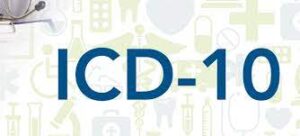
HHSC has updated the Approved Diagnostic Codes for Persons with Related Conditions effective Oct. 1, 2022 to Sept. 30, 2023.
The list of diagnostic codes has not changed for this year and can be viewed at HHSC Approved Diagnostic Codes for Persons with Related Conditions.
Important Reminder: HCS/TxHmL Webinar-October 13th, 2022
October 6th, 2022

HHSC will be hosting HCS & TxHmL Updates Provider Webinar on Oct. 13
For: HCS/TxHmL program providers, LIDDA’s, and other interested parties
This webinar will provide information on the following:
- Substantial changes being made to the HCS and TxHmL Program rules.
- IL 2022-49, assessments of HCS three-person residences, four-person residences and host home/companion care settings for compliance with the federal HCS settings rules.
HCS and TxHmL Program Updates Provider Webinar
Oct. 13
1–3 p.m.
Reminder-HCS Provider Applicants: LTC Providers Must Enroll in Texas Medicaid Before They Can Get Their Contract
August 4th, 2022
All New LTC Providers must Enroll in Texas Medicaid. (So, this means even HCS provider applicants, at least once they are nearing the stage of having their application approved and/or at the latest, prior to receiving their contract/s. Remember, you can’t start providing services and accepting clients to your HCS program until you get your letter with the approved contract/s.
- Applicants that intend to bill through TMHP for acute care or long-term care only services must enroll through TMHP.
FYI-New HCS Provider applicants, I would recommend utilizing the “walkthrough assistance” for enrollment.
TMHP offers hands-on assistance with completing and submitting the TMHP enrollment application.
For enrollment walkthrough assistance please contact the TMHP Contact Center (800-925-9126) or TMHP-CSHCN Services Program Contact Center (800-568-2413) or send an email to provider.relations@tmhp.com to request assistance with enrollment questions
Contact Administration and Provider Monitoring
Mail Code W-359
P.O. Box 149030
Austin, TX 78714-9030
- PEMS provider enrollment webpage
https://www.tmhp.com/topics/provider-enrollment - TMHP Contact information
2022 IDEA (Individuals With Disabilities Education Act) Manual
October 5th, 2022
Updated 2022 IDEA Manual
The updated 2022-2023 IDEA Manual is now available in both English and Spanish on the Disability Rights Texas website.
Created in partnership with The Arc of Texas, this manual is designed to help you understand the requirements of the federal Individuals with Disabilities Education Act (IDEA) and Texas law so you can act as an equal partner in planning your child’s education.
Awarded Levels for the Attendant Compensation &DCS Enhancement Programs-2023
October 2nd, 2022
Texas HHSC has posted awarded levels for Long-term Services and Supports (LTSS) providers participating in the Attendant Compensation and Direct Care Staff enhancement programs for state fiscal year (FY) 2023 for the following programs:
Attendant Compensation Rate Enhancement Program for:
- Community Living Assistance and Support Services (CLASS) – Direct Service Agency (DSA);
- Day Activity and Health Services (DAHS);
- Deaf-Blind with Multiple Disabilities Waiver (DBMD);
- Home and Community-based Services (HCBS);
- Primary Home Care (PHC);
- Residential Care (RC);
- Texas Home Living (TxHmL); and
- Intermediate Care Facilities for Individuals with an Intellectual Disability or Related Conditions (ICF/IID).
To view the FY2023 enrollment awarded levels list, please visit the PFD website. If you have questions regarding your FY2023 enrollment status, please contact the LTSS Center for Information and Training (CIT) by phone at (737) 867-7817 or by email
Deadline Coming Up Soon For Comments on HHSC Proposed TAC Rules

September 24th, 2022
Deadline for Comments on HHS Proposed Rules Due Oct. 17
Texas HHSC is accepting comments from stakeholders on the following proposed rules, which are now posted in the Texas Register. The comment period ends Oct. 17, 2022.
- Texas Administrative Code,
- Title 40, Part 1, Chapter 9, Subchapter N, repeal of Sections 9.551, 9.552, 9.554, 9.556, 9.558, 9.560 – 9.563, 9.566 – 9.568, 9.570, 9.571, 9.573 – 9.575, 9.582, 9.583, concerning Home and Community-based Services (HCS) Program and Community First Choice (CFC); and
- Title 26, Part 1, new Chapter 262, Texas Home Living (TxHmL) Program and Community First Choice (CFC). Comments can be emailed to HHS Rules Coordination Office.
- Texas Administrative Code,
- Title 40, Part 1, repeal of Chapter 9, Subchapter D, Sections 9.151, 9.152, 9.154 – 9.170, 9.186, 9.189 – 9.192, concerning Home and Community-based Services (HCS) Program and Community First Choice (CFC); and
- Title 26, Part 1, new Chapter 263, Home and Community-based Services (HCS) Program and Community First Choice (CFC). Comments can be emailed to HHS Rules Coordination Office.
Questions can be emailed to HHS Rules Coordination Office.
See TMHP’s LTC Waiver Programs Reference Material Webpage
September 18th, 2022
THMP has website page with reference material for LTC Waiver Programs. See link below:
Updated LTC Online Portal User Guides for HCS and TxHmL Waiver Programs Now Available
Updated LTC Online Portal User Guides for HCS and TxHmL Waiver Programs Now Available
The Long-term Care Online Portal User Guides for Home and Community-based Services and Texas Home Living Waiver Programs have been updated.
The learning path has been updated to include detailed instructions for entering Consumer Directed Services services in dollars instead of units, which were added to the 3608 and 8582 Individual Plan of Care Item-by-Item guides.
Crosswalk Billing Codes For DH -Sept. 2022 Update
September 17th, 2022
EVV Mismatches For DH
Providers Must Use Bill Codes Listed in the HCS and TxHmL Bill Code Crosswalk for Claims Submission
Concern and Issue
HCS and TxHmL providers are receiving unnecessary electronic visit verification (EVV) mismatches for Day Habilitation services due to providers not using proper bill code and modifier combinations based on where services are delivered.
Which day habilitation bill codes do I use?
In-Home Day Habilitation services delivered in an own home or family home setting require EVV visits before billing and must be billed using the following bill codes:
- M0115 – DAY HABILITATION – LN 1 – IN-HOME
- M0116 – DAY HABILITATION – LN 5 – IN-HOME
- M0117 – DAY HABILITATION – LN 6 – IN-HOME
- M0118 – DAY HABILITATION – LN 8 – IN-HOME
- M0119 – DAY HABILITATION – LN 9 – IN-HOME
- M0201 – DAY HABILITATION – LC 1 – IN-HOME
- M0202 – CDS DAY HABILITATION – LC 1 – IN-HOME – Modifier 1 Position UC
In-Home Day Habilitation delivered in a host home or companion care setting, three-person or four-person residence, and Day Habilitation provided outside of the home do not require EVV visits and must be billed using the following bill code and modifier combinations:
- M0421 – DAY HABILITATION – LN 1 – OUT-OF-HOME – Modifier 1 Position – KX
- M0422 – DAY HABILITATION – LN 5 – OUT-OF-HOME – Modifier 1 Position – KX
- M0423 – DAY HABILITATION – LN 6 – OUT-OF-HOME – Modifier 1 Position – KX
- M0424 – DAY HABILITATION – LN 8 – OUT-OF-HOME – Modifier 1 Position – KX
- M0425 – DAY HABILITATION – LN 9 – OUT-OF-HOME – Modifier 1 Position – KX
- M0460 – DAY HABILITATION – LC 1 – OUT-OF-HOME – Modifier 1 Position – KX
- M0461 – CDS DAY HABILITATION – LC 1 – OUT-OF-HOME – Modifier 1 Position – TG
September 17th, 2022
For HCS and TxHmL providers participating in the COVID add-on program, follow the instructions below.
Note: Only program providers delivering in-home Day Habilitation services in a three-person or four-person residence qualify for the COVID add-on program.
In-Home Day Habilitation services delivered in a three-person, or four-person residence do not require EVV visits and must be billed using the following bill code and modifier combinations:
- M0944 – DAY HABILITATION – LN 1 – OUT-OF-HOME W/ COVID ADDON – Modifier 1 Position – KX – Modifier 2 Position – CR
- M0945 – DAY HABILITATION – LN 5 – OUT-OF-HOME W/ COVID ADDON – Modifier 1 Position – KX – Modifier 2 Position – CR
- M0946 – DAY HABILITATION – LN 6 – OUT-OF-HOME W/ COVID ADDON – Modifier 1 Position – KX – Modifier 2 Position – CR
- M0947 – DAY HABILITATION – LN 8 – OUT-OF-HOME W/ COVID ADDON – Modifier 1 Position – KX – Modifier 2 Position – CR
- M0948 – DAY HABILITATION – LN 9 – OUT-OF-HOME W/ COVID ADDON – Modifier 1 Position – KX – Modifier 2 Position – CR
Resources
EVV PCS Service Bill Codes Table
HCS and TxHmL Bill Code Crosswalk (for claims with dates of service beginning 05-01-2022)
February 27th, 2022
HCS and TxHmL Billing Changes In The Crosswalk for DH
HCS and TxHmL providers must use the HCS and TxHmL Bill Code Crosswalk starting March 1, 2022 to submit claims for all services. The bill code was updated Dec. 28, 2021.
The HCS and TxHmL Bill Code Crosswalk includes new bill codes for the services that require electronic visit verification.
For HCS program providers:
- Providing out of home day habilitation or in-home day habilitation in a host home or companion care setting, program providers must use the out-of-home day habilitation bill codes.
- Not participating in the COVID add-on program, in-home day habilitation provided in a three-person residence or four-person residence, program providers must use the out-of-home day habilitation bill codes.
- Participating in the COVID add-on program, in-home day habilitation provided in a three-person residence or four-person residence, the program provider must use the out-of-home bill codes below with the modifiers “KX” and “CR.”
- For LON 1: M0944
- For LON 5: M0945
- For LON 8: M0947
- For LON 6: M0946
- For LON 9: M0948
Contact the HCS Policy Box with questions.
HCS Administrative Penalties, Survey, & Billing Requirement Updates
September 17th, 2022
HHSC publishes revised PL 20-55
HHSC Long-term Care Regulation updated Provider Letter 20-55 to include an updated link to the new amelioration form for HCS and TxHmL program providers.
The form is entitled 3708-A HCS and TxHmL Amelioration Request.
May 30th, 2022
HHSC has revised HCS and TxHmL Survey Operations Transformation (PL 21-26)
HHSC revised PL 2021-26 to reflect updates to the HCS or TxHmL Program Manager and Assistant Regional Director contact list.
September 5th, 2021
Now Called Billing Requirements Not Billing Guidelines!!!!
HHSC Publishes Revision 21-3 of the HCS and TxHmL Program Billing Requirements and CFC Billing Requirements
HHSC Publishes Revision 21-3 of the HCS and TxHmL Program Billing Requirements and CFC Billing Requirements
This revision, effective Sept. 1, changes the name from Billing Guidelines to Billing Requirements, and all revisions are outlined in the 21-3 Revision Section of each document.
The Billing Requirements are located on the Long-term Care Providers webpage and Handbooks webpage and are outlined below:
- HCS Billing Requirements (PDF)
- TxHmL Billing Requirements (PDF)
- CFC Billing Requirements for HCS and TxHmL Program Providers (PDF)
Email questions to TxHmL Policy.
September 5th, 2021
Very Important!!! HHSC Releases Guidance Booklet for HCS/TxHmL Providers
Section 4 of House Bill 3720, 87th Legislature, Regular Session, 2021, requires HHSC to develop guidelines for regulatory staff and providers regarding the imposition of administrative penalties. To implement this provision, HHSC is offering training to regulatory staff and providers regarding the certification principles and the administrative penalty criteria and process. In conjunction with these training opportunities, HHSC has developed a comprehensive guidance booklet (PDF) that captures the training content in a user-friendly format. This booklet is available to training participants and on the HCS and TxHmL provider portals. See the registration link below for training webinar presented on September 9th, 2021.
Register for HCS/TxHmL training here.
September 5th, 2021
HHSC Publishes Revised Informal Dispute Resolution (PL 2021-07)
HHSC published a revised version of Provider Letter 2021-07, Informal Dispute Resolution (PDF). A revision was made to update the contact phone number.
August 15th, 2021
HHSC Publishes Revised Guidance for HCS/TxHmL Providers Regarding: How to File a Survey Complaint (PL 20-21)
HHSC has updated PL 2020-01, How to File a Complaint Regarding a Surveyor and Report Survey Inconsistencies (PDF).
The letter has been revised to include information for how HCS and TxHmL program providers can file a complaint regarding a surveyor, how to report survey inconsistencies related to the interpretation and application of regulations and rules, and to provide updated contact information for Long-term Care Regulatory HCS and TxHmL regional program staff.
April 26th, 2021
HHSC’s WS&C Portal
Additional changes are coming to address Surveys and violations received from surveyors. These include contacting WSC staff concerning violations and submitting EOC’s and POC’s to WSC through the WSC Portal!
On April 27th and 29th 2021: HHSC hosted a webinar on WSC Portal Training for HCS/TxHmL providers.
- A recorded session of The WSC portal training
Here are the handouts:
- Basics of portal
- Provider letter 2021-13
- WSC Portal Training Handout
This portal will only be used to enter final PIR Reports, Submit EOC’s (Evidence of Correction), Submit POC’s (Plans of Correction) as well as communicate with WSC staff about POC’s/EOC’s, and Report a Death of an Individual in the program.
- Where do I find the page to create the portal?
- Bookmark this link below, because that is where it will be and it will go live closer to the release of the portal.
- https://hhs.texas.gov/doing-business-hhs/provider-portals/long-term-care-providers/resources/waiver-survey-certification-wsc-provider-portal
March 29th, 2021
March 19 Recording of Clarification of Administrative Penalties and Related Processes Webinar Available
A recording of the March 19, 2021 Clarification of Administrative Penalties and Related Processes for HCS and TxHmL Providers webinar is available for those unable to attend.
Listen to the webinar recording here.
March 28th, 2021
March 16 Recording of Clarification of Administrative Penalties and Related Processes Webinar Available
A recording of the March 16, 2021 Clarification of Administrative Penalties and Related Processes for HCS and TxHmL Providers webinar is available for those unable to attend.
Listen to the webinar recording here.
January 10th, 2021
Jan. 5 Recording Webinar Available – HCS and TxHmL Changes to Survey Process and “Hold Harmless Period” Overview
A recording of the Jan. 5, 2021, HCS and TxHmL Changes to Survey Process and Hold Harmless Period Overview webinar is available for those unable to attend.
Listen to the webinar recording here.
Jan. 7 Recording of HCS and TxHmL Administrative Penalties and Amelioration Available
A recording of the Jan. 7, 2021 HCS and TxHmL Administrative Penalties and Amelioration webinar is available for those unable to attend.
Listen to the webinar recording here.
December 28th, 2020
Letter: PL 20-55 Administrative Penalties HCS & TxHmL
https://apps.hhs.texas.gov/providers/communications/2020/letters/IL2020-19.pdf
December 23rd, 2020
Upcoming HCS and TXHmL Webinars For:
“Hold Harmless” Period & Administrative Penalties & Amelioration
Hold Harmless Period Overview
This webinar will cover the “Hold Harmless” period for the new survey process for HCS and TxHmL.
Jan 5, 2021
2 p.m. – 4 p.m.
Here’s the link to record session:
https://attendee.gotowebinar.com/recording/4225828217950682891
For a copy of the handouts, you can email: Shelley.Gusky01@hhs.texas.gov
Administrative Penalties and Amelioration
This webinar will review the new survey process for HCS and TxHmL which begins on March 1, 2021 and will include and overview of administrative penalties and amelioration.
Jan 7, 2021
1 p.m. – 4 p.m.
Register for the webinar.
For a link to the recording of this session and a copy of the handouts, you can email: Shelley.Gusky01@hhs.texas.gov
HHSC Publishes Administrative Penalty Process for HCS & TxHmL Program Providers (PL 20-55)
November 25, 2020
HHSC Long-term Care Regulation has published PL 20-55 – Administrative Penalty Process for Home and Community-based Services (HCS) and Texas Home Living (TxHmL) Program Providers (PDF). The PL provides guidance to providers on the rules regarding administrative penalties.
Billing Guideline Changes
The HCS, TxHml, and CFC billing guidelines have been updated effective September 1, 2020. A summary of the revisions can be found on page 25 of the CFC (PDF), page 146 of the HCS (PDF) and page 122 of the TxHmL (PDF). Send questions about the billing guidelines to HCS.TxHml.BPR@hhsc.state.tx.us.
June 20, 2020
Survey Process: Timelines
HHSC Provider User Guide (CARE) 
Please go to the following link:
.
Updated Webinar Resource Document & TMHP Account Setup Quick Reference Guide
September 15th, 2022
Updated Webinar Resource Document and TMHP Account Setup Quick Reference Guide
(HCS and TxHmL Waiver Program Providers)
From HHSC Alert September 12th, 2022
The Webinar Resource document that accompanied the Long-Term Care (LTC) Online Portal Training for Home and Community-based Services (HCS) and Texas Home Living (TxHmL) Waiver Programs webinar and the TMHP Account Setup for HCS and TxHmL Waiver Programs Quick Reference Guide have been updated. Read the full alert at Webinar Resource Document and TMHP Account Setup Quick Reference Guide.
Important! (Avoiding HCS and TxHmL Overpayment of Services)
September 12th, 2022
Avoiding HCS and TxHmL Overpayment of Services
Effective Jan. 2, 2023 Texas Medicaid and Healthcare Partnership (TMHP) will perform monthly calculations on services for the Individual Plan of Care that overlaps the May 1, 2022 implementation of the new process for submitting Home and Community-based Services and Texas Home Living forms and claims.
On a quarterly basis, TMHP will calculate all services that have been paid through Client Assignment and Registration System and TMHP and will recoup services that exceed the authorized IPC amount.
Read the full alert.
TCDD: Deadline For RFA’s For Grants For Persons With Developmental Disabilities
August 23d, 2022
From our friends at the Texas Council for Developmental Disabilities!
|
|||||||||||||||||||||||||||||||||||
|
|
|||||||||||||||||||||||||||||||||||
|
|||||||||||||||||||||||||||||||||||
|
Provider Enrollment & Management System (PEMS)
August 22nd, 2022
PEMS
The Texas Medicaid & Healthcare Partnership (TMHP) is experiencing an unusually high volume of calls and emails from providers with requests for Provider Enrollment and Management System (PEMS) assistance.
As a result, TMHP requests the following of providers requiring PEMS assistance:
- TMHP encourages providers that request PEMS assistance to wait for a call back. Requests are being handled in the order they are received.
- TMHP requests that providers not initiate a second request. Duplicate requests can cause delays.
***Note: Twogether Consulting advises those in the process of getting their HCS provider contract, who are not currently providers, to please call PEMS for “walkthrough services”. Do not try to apply online as you do not have a contract # yet!.
- Provider Enrollment Help on TMHP.com
For more information, call the TMHP Contact Center at 800-925-9126 or the TMHP-CSHCN Services Program Contact Center at 800-568-2413.
- While waiting for PEMS assistance, providers should refer to the following PEMS educational materials that may assist with PEMS enrollment, re-enrollment, revalidation, change of ownership, and maintenance requests (maintaining and updating provider enrollment record information).
PEMS Training Materials Available on the TMHP Learning Management System (LMS)
The following training materials are available in the PEMS Learning Path on the TMHP LMS to help providers learn how to navigate and use PEMS:
- PEMS webinar recordings
- Provider Frequently Asked Questions (FAQ) about PEMS
- The following computer-based training (CBT) modules:
- “General Information”
- “Resources”
- “New Enrollment”
- “Reenrollment”
- “Provider Management”
- PEMS Video Series
- Video entitled “PEMS vs. PEP” (PEP is the old system and it stands for Provider Enrollment on the Portal)
- “Quick Start Guide to Using PEMS”
- “PEMS Best Practices Guide”
Note: Providers must have a username and password to access the above materials on the LMS. To learn how to obtain a username and password, click here.
Informational Videos Available on the TMHP YouTube Channel
The following videos are in the Provider Enrollment & Management System playlist on the TMHP YouTube channel:
- “The Benefits of PEMS”
- “Removal of TPI from Forms”
- “TMHP Secure User Account”
- “Message Dashboard in TMHP User Account”
- “PEMS Dashboard Overview”
- “PEMS Navigation Panel”
- “Resolving Deficiencies”
- “Start New Enrollment”
- “Adding Attachments”
- “Signing Agreements”
Providers who need help navigating the TMHP website can view the following videos on the TMHP Website Refresher playlist on the TMHP YouTube channel:
- “TMHP Website: Overview”
- “TMHP Website: Provider Manuals”
- “TMHP Website: Provider Relations”
- “TMHP Website: Provider Notifications”
- “TMHP Website: My Account”
- “TMHP Website: Topics”
- “TMHP Website: Programs”
- “TMHP Website: Provider Enrollment”
- “TMHP Website: Resources”
Get More Information
Additionally, the following information related to PEMS is available on the TMHP website:
- “The Benefits of PEMS” guide
- Recent news about PEMS
- Provider Enrollment Help on TMHP.com
For more information, call the TMHP Contact Center at 800-925-9126 or the TMHP-CSHCN Services Program Contact Center at 800-568-2413.
Extreme Drought Conditions
August 14th, 2022
Extreme Drought Conditions
Texas is currently experiencing statewide drought conditions. Numerous water systems are stressed and may continue to experience issues as the drought progresses, and there are concerns about the impacts on long-term care facilities. Water may become limited, in addition due to the extreme heat Texas is using a record amount of electricity so we may be subject to rolling blackouts in the near future. A/C systems are stressed and foundation problems such as cracking have occurred, due to the extreme heat and drought.
LTC providers should review their emergency preparedness and response plans to ensure people know what to do in an emergency related to drought. Confirm contingency strategies are in place and continue readiness for potential issues, including breakdowns associated with water supplies, power supplies and cooling systems.
A few tips from us at Twogether Consulting:
-Don’t wait til the breakdown or disaster occurs, stock up here and there on bottle-watered supplies now, not during a water shortage occurs, and panic has set in at the stores.
-Maintain your A/C/Cooling systems:
- Change the filter regularly. Probably every 2-3 months for most central A/C systems, but check the guidance for your system. With the African dust being so severe, and little rain during the drought, more dust and dirt may be getting into your A/C filter, and trust me, it can shut them down quick this summer.
- Be sure to inform and train your staff at the group homes, if they are persons that need to complete this task.
- If you have maintenance staff, please have them maintain a regular schedule for changing A/C filters for the facility and the group homes.
- If you do not have maintenance staff or others taking care of filters. If the filter is dirty, often that can cause your system to go down.
-If you own some of your own “group homes”, it may be a good idea to purchase homeowner’s insurance now, in case these types of breakdowns occur, as the cost will be much less than paying to fix or even purchase brand new A/C system. Many times they can get someone out to fix the equipment or appliance a lot faster as well with a minimal service charge for coming to fix it. .
-Do you have a backup place the individuals can go, in case the A/C does go out and you can’t repair it quickly?
-Do you have a few bigger size coolers (preferable with wheels for portability), in case the power goes out for a lengthy period of time and you need to ensure your food doesn’t spoil if possible?
-Purchase a backup generator (if feasible &/or appropriate)
-Have your staff check to see if batteries need replacements in flashlights in the group homes.
-Purchase some fans and portable plug-in coolers if A/C system goes out or may go out soon (if feasible &/or appropriate)
Read the news release about the counties currently under the Governor’s Disaster Declaration for Drought and the proclamation from the Governor (PDF).
Visit the HHSC Emergency Preparedness webpage for more information on emergency preparedness for LTC providers.
Revised LTC (Long-Term Care) Region Boundaries
August 8th, 2022
New LTC Boundaries for Survey and Investigation purposes In effect as of August 1st, 2022
HHSC has published Provider Letter 2022-18 – New Regional Boundaries for Long-term Care Providers (PDF).
The letter indicates that HHSC Long-term Care Regulation has redrawn regional boundaries for survey and investigation purposes effective August 1, 2022.
All LTC providers are affected by the new regional boundaries.
Former Region 7 is now separated into two new regions: Region 8 and 11.
Offsite Investigations Requirements Same As Onsite
July 30th, 2022
HHSC Reminds LTC Providers of Offsite Investigation Requirements (PL 2022-15)
HHSC has published Provider Letter 2022-15 – Offsite Review Responsibility Requirements (PDF).
The letter reminds facilities and agencies that they have the same obligation to respond to an investigation that HHSC conducts virtually and offsite as they do during an investigation that HHSC conducts in-person and onsite.
How to Adjust a Previously Adjusted Claim: For Dates Beginning May 1st, 2022 (HCS/TxHmL)
July 30th, 2022
The TexMedConnect User Guide has instructions for adjusting a previously submitted claim with dates of service on May 1 or later. However, the guide does not have instructions for adjusting a previously adjusted claim.
The user guide will be updated to include these instructions. In the meantime, follow the steps in the full alert for adjusting a previously adjusted claim in TexMedConnect.
Non-Waiver Services on The IPC Must Be Entered Into LTC Online Portal (HCS Providers)
July 30th, 2022
Entering Non-Waiver Services in the LTC Online Portal in the HCS Program
Effective immediately, Home and Community-based Services Program providers are responsible for entering all non-HCS Program and non-Community First Choice services into the HHSC data system.
Non-HCS and non-CFC services data are entered in the “Non-Waiver” services tab of the individual plan of care in the Long-term Care Online Portal. During a meeting to develop or revise an IPC, the service coordinator must provide information to the HCS Program provider about all non-HCS and non-CFC services and supports a person receives.
Per 40 Texas Administrative Code Section 9.159(c), an IPC must be based on a person’s person-directed plan. The IPC must specify the type and amount of each HCS service, CFC service (except CFC support management), and the non-HCS and non-CFC services and supports provided during the IPC year.
The service coordinator is still responsible for entering non-HCS and non-CFC services in the LTC Online Portal for HCS services delivered through the Consumer Directed Services option
FAQ’s For ARPA Retention Payments for HCBS & TxHmL
From HHSC:
“The FAQ document has been updated to reflect additional questions that were received during the June 8, 2022 webinar.
Some questions were similar so HHSC combined the main themes of questions received and provided the answer/response below. The FAQ has also been updated to reflect an extension of the deadline for the attestation and initial report. It was July 1, 2022 and has been extended to August 15, 2022.
If you have a question not addressed by this document, please contact: PFDLTSS@hhs.texas.gov.
If you have questions about the HHSC HCBS ARPA spending plan, please contact Medicaid_HCBS_Rule@hhsc.state.tx.us. The webinar recording, which includes a step-by-step walk-through of the attestation and reporting, is available here: https://attendee.gotowebinar.com/recording/8631581217532733954
HHSC is providing a temporary rate add-on for certain home and community-based services delivered between March 1, 2022 and August 31, 2022. Information regarding the temporary rate add-ons can be viewed here: https://pfd.hhs.texas.gov/long-term-services-supports.”
Below is the full FAQ document
https://pfd.hhs.texas.gov/sites/rad/files/documents/long-term-svcs/2022/2022-hcbs-arpa-faq.pdf
ARPA Retention Payments Now Beginning: For Claims Processed in CARE from March 1st-April 30th, 2022
July 27th, 2022
American Rescue Plan Act HCBS & TxHmL Provider Retention Payments
HCBS ARPA Payments in CARE/HCBS Enhanced FMAP Payments in CARE
The Texas Health and Human Services Commission implements American Rescue Plan Act (ARPA) Home and Community-Based Services (HCBS) provider retention payments.
HCS and TxHmL claims processed on the ID CARE system for dates of service between March 1–April 30, 2022, meeting the eligibility requirements for receiving the ARPA rate add on, will begin to be processed toward the end of July.
Providers will receive three new reports that will include the ARPA add on payments.
NOTE: These same reports are currently being received for regular claim payments under a different Report ID.
Here are the 3 new ARPA reports are provided below:
Approved To Pay Report: HC064110.TXT
Claims Detail Extract: GC063979.TXT
Remittance and Status Report: HC064112.TXT
All providers receiving these ARPA payments will see these new reports delivered every Tuesday morning to their current folders. HHSC is processing payments at the client ID level. Due to the volume of claims, not all providers will receive ARPA payments each week. These ARPA payments will not be viewable within the ID CARE online system at this time but will be reflected in reports.
Questions about the HCBS spending plan can be sent to medicaid_hcbs_rule@hhsc.state.tx.us.
Questions about rates, attestation or reporting: pfd-ltss@hhs.texas.gov.
Monthly Provider COVID-19 Reporting Requirements- Compliance with SB 809 and Rider 143
July 18th, 2022
Monthly Reporting Required
REMINDER FROM HHSC: Completion of the Senate Bill 809/Rider 143 Monthly Report is REQUIRED of all participating providers, regardless of whether a provider or facility has received additional federal funding during the reporting month.
All participating providers must complete the Senate Bill 809/Rider 143 Monthly Report every month, even if they did not receive additional federal funds during the reporting month. The reports are due no later than 5 p.m. on the 1st day of the month following each reporting period. (For example, the report for July 2022 data will be due by 5 p.m. on August 1, 2022.)
HHSC regularly updates the list of healthcare institutions who must submit reports in compliance with Senate Bill 809 or Rider 143. The list can be found here under the SB 809/Rider 143 COVID-19 Reporting Healthcare Institution List dropdown.
Note: this list is derived at a point in time (currently as of July 1, 2022) and not all-inclusive as providers may enroll or change at various times. The list will be updated every Friday by close of business. Any provider that is identified as a “Health Care Institution” as defined in Section 74.001 of the Civil Practice and Remedies Code is required to complete the reports. The list has been updated to align with licensing agencies.
For more information about the Senate Bill 809/Rider 143 Monthly Report, please review this list of frequently asked questions and responses and visit the HHSC Provider Finance Department Communications web page.
If you have question(s) about the content of the report or need technical assistance, please email the HHSC Provider Finance Department at HHSC_PFD_Survey@hhs.texas.
January 9th, 2022
Reminder: SB 809 / Rider 143 COVID-19 Reporting
The Health and Human Services Commission (HHSC) is posting the list of healthcare institutions, as identified by HHSC, who must submit reports in compliance with Senate Bill 809 or Rider 143. The list also identifies those providers who have not submitted a SB 809/Rider 143 Report. The list can be found on the Provider Finance website under SB 809/Rider 143 COVID-19 Reporting Healthcare Institution List. Note: this list is for the reporting periods of January 2020 – August 2021, September 2021, and October 2021, which were all due 5:00 PM CST on December 1, 2021.
If you believe there is an error in the list, please email us with “SB 809/Rider 143 Reporting” in the subject line by 5:00 PM CST on January 5, 2022.
If all required reports by a provider have not been received by 5:00 PM CST on January 5, 2022, HHSC will begin immediate enforcement of disciplinary actions as authorized by Title 1 Texas Administrative Code Section 355.7201 (TAC) related to the penalties for failure to report. The health care institutions that have “not submitted” are deemed non-compliant at this time.
The initial report required from providers includes funding and cost data covering the period January 2020 through August 2021. The subsequent reports will be ongoing and will cover a single month; each monthly report will be due on the 1st of the second following month following the end of the month (for example, the report for November 2021 data will be due January 1, 2022).
December 30th, 2021
GovDelivery Update: SB 809 / Rider 143 COVID-19 Reporting
This is a notification that HHSC has identified an error in the list of healthcare institutions that have submitted and have not submitted a SB 809 / Rider 143 report. HHSC has now resolved this matter.
HHSC has published a corrected list on the Provider Finance website under SB 809/Rider 143 COVID-19 Reporting Healthcare Institution List.
If you have any questions or concerns regarding this list, please email us with “SB 809/Rider 143 Reporting” in the subject line by 5:00 PM CST on January 5, 2022.
December 14th, 2021

Very Important News! The due dates for the SB 809 Monthly COVID-19 Reports have changed.
Previously the reports were due on the 15th of the month following the month which the report covered. They are now due on the 1st of the second following month. Example: The report covering November is now due January 1, 2022 rather than December 15, 2021. See updated message on HHSC’s webpage below.
The initial report located here includes funding and cost data covering the period January 2020 through August 2021 and is due October 1, 2021. The subsequent reports (located here) will be ongoing and will cover a single month; each monthly report will be due on the 1st of the second following month following the end of the month (for example, the report for September 2021 data will be due November 1, 2021.)
November 30th, 2021
November 14th, 2021
PROVIDER REPORT GRACE PERIOD
HHSC is granting a “grace period” to allow providers time to come into compliance if they fail to meet any deadlines between October 1, 2021, and November 30, 2021. While the deadlines to report will not change, HHSC will not take any of the available actions against a provider as long as the provider submits all the required reports due between October 1, 2021, and November 30, 2021. The grace period ends December 1, 2021.
Because vendor hold can be imposed for lack of compliance and non-compliance will impact a provider’s eligibility to receive the state-controlled ARPA funds made available through SB 8 (Nelson, 3rd Special Session). Please share this information!
Very Important!!! State-Controlled ARPA Funds in relation to COVID-19 Reporting Requirements: Section 33, Subsection (b) of SB 8 states “it is the intent of the legislature that HHSC prioritizes grants to grantees that comply with Rider 143 (SB 1, 87th Session) and SB 809 (87th Session).” [Rider 143 DOES NOT apply to ICFs/IID, HCS, TxHmL, CLASS or DBMD]. This statutory provision may result in many providers not being eligible to receive these funds. Many providers may have overlooked the notices related to the monthly reporting requirement or believed that the requirement did not apply to them, thus they have asked whether HHSC would be amenable to allowing providers to come into compliance before the grants are distributed.
HHSC has said that providers have until December 1st, 2021 to come into compliance. Non-compliance during this ‘grace’ period would not impact one’s eligibility, but non-compliance after the grace period would have an adverse impact on a provider receiving the grant. While excellent news, we would urge providers to comply with the requirement and submit any reports previously not submitted. As stated under the COVID-19 Monthly Reporting Requirement section of this message, non-compliance can also result in vendor hold.
For questions about the reporting process, email HHSC Provider Finance Survey for assistance at: HHSC_RAD_Survey@hhs.texas.gov
Information and FAQs Please visit the HHSC Provider Finance Department Communications web page for more information about the report. Then click on “Monthly SB 809/Rider 143 COVID-19 Reporting.”
October 3rd, 2021
Don’t Forget, The 1st Monthly Ongoing Provider Report is Due October 15th, 2021!
The ongoing SB 809 and Rider 143 report and further information—including a PDF version of the report questions—are available on the HHSC Provider Finance Department website, and may be accessed on the main webpages for Acute Care Services, Hospitals and Clinic Services, and Long Term Services and Supports. Please note that this Microsoft Form link is separate from the initial report that covered the period of January 31, 2020 – August 31, 2021.
Grace Period
HHSC is granting a “grace period” to allow providers time to come into compliance if they fail to meet any deadlines between October 1, 2021, and November 30, 2021. While the deadlines to report will not change, HHSC will take no action against a provider as long as the provider submits all required reports due between October 1, 2021, and November 30, 2021, prior to the end of the grace period. The grace period ends December 1, 2021.
Sept. 18th, 2021
FAQ’s For Compliance With SB809 & Rider 143: Monthly Provider Reporting Requirements Concerning COVID-19 Funding
Introduction:
The 87th Texas Legislature directed the Health and Human Services Commission (HHSC) to report federal COVID-19 funding from specific health care institutions, and certain costs those providers have spent related to COVID-19 public health emergency. HHSC has developed a monthly report to obtain the information required by Rider 143 (.pdf) (2022-23 General Appropriations Act, Senate Bill (S.B.) 1, 87th Legislature, Regular Session, 2021 (Article II, HHSC, Rider 143) and S.B. 809 (.pdf) (87th Legislature, Regular Session, 2021).
Frequently Asked Questions (FAQ):
View the HHSC created list of “frequently asked questions ” (FAQ) (.pdf) with the answers to common questions to assist providers in completing the report.
Reporting:
The initial report located here includes funding and cost data covering the period January 2020 through August 2021 and is due October 1, 2021. The subsequent reports will be ongoing and will cover a single month; each monthly report will be due on the 15th of the month following the end of the month (for example, the report for October 2021 data will be due November 15, 2021.
You will receive a confirmation once your report has been fully completed and submitted.
A pdf version of the report is available here (.pdf) for review prior to submitting the report.
If you are unable to meet the reporting deadline please contact the Provider Finance Department at HHSC_RAD_Survey@hhs.texas.gov for assistance.
Failure to submit:
Failure to complete and/or submit the required monthly report(s) on time will result in:
- A report to the Department of State Health Services or HHSC Regulatory Services and potential adverse actions on your licensure and/or
- HHSC may initiate payment holds for providers who fail to submit the required monthly reports.
HHSC is granting a “grace period” to help providers come into compliance if they fail to meet any deadlines between October 1, 2021, and November 30, 2021. While the deadlines to report will not change, HHSC will not any of the actions listed above against a provider as long as the provider submits all the required reports due between October 1, 2021, and November 31, 2021. The grace period ends December 1, 2021.
List of Some Of The Providers Required to Complete Reports:
Here are some of the following entities that are required to complete the report:
- Intermediate Care Facilities for Individuals with an Intellectual Disability or Related Conditions (ICF/IID);
- Community Living Assistance and Support Services (CLASS) or Case Management Agency (CMA) Providers;
- Deaf-Blind with Multiple Disabilities (DBMD) Providers;
- Home and Community-Based Services (HCS) Providers;
- Texas Home Living (TxHmL) Providers;
Please email the HHSC Provider Finance Survey for assistance at HHSC_RAD_Survey@hhs.texas.gov.
September 18, 2021
As required by Senate Bill (SB) 809 and Rider 143 of the 87th Legislature (regular session)(copied below), HHSC will begin collecting information on the total value and uses of COVID-19 related Federal funds through monthly reports. The first report is due October 1, 2021. Reminder of Publication of Proposed Rules
HHSC published proposed rules related to SB809 and Rider 143 in the Texas Register on August 13, 2021, pages 4928-4931. The comment period ends September 3, 2021.
Rider 143
Reporting Requirement: COVID-19 Funding to Nursing Facilities and Hospitals. Out of funds appropriated above in Strategy B.1.1, Medicaid Contracts and Administration, the Health and Human Services Commission (HHSC) shall develop a report detailing the total value and uses of COVID-19-related Federal Funds, including Provider Relief Funds, provided directly to nursing facilities and hospitals contracting with HHSC since the beginning of the public health emergency. The report should include any temporary rate increases provided to nursing facilities related to the COVID-19 pandemic. Any facilities that do not provide information requested by the commission necessary to complete the report shall be identified in the report. The first submission of the report shall also include a description of any requirements implemented for nursing facilities in response to the COVID-19 pandemic, the cost to nursing facilities to implement the requirements, and recommendations on whether or not the requirements should be continued after the end of the public health emergency. HHSC shall submit the report to the Governor, Legislative Budget Board, and any appropriate standing committee in the Legislature on December 1st and June 1st of each fiscal year. The format and content of the report shall be specified by the Legislative Budget Board and posted on the HHSC website. Appropriations in Strategy A.2.4, Nursing Facility Payments, for fiscal year 2023 are contingent on the submission of the reports due December 1, 2021 and June 1, 2022.
Please look for forthcoming announcements from HHSC regarding these important reporting requirements. For more information, please contact HHSC Provider Finance.
Prepare for Ending Continuous Medicaid Coverage Now-Before The Public Health Emergency Ends
July 14th, 2022
Important Medicaid Coverage-Don’t Wait-Please Respond to Medicaid Letters- Changes To Occur in Medicaid Coverage
After Public Health Emergency Ends
This information letter gives service coordinators, case managers, and providers information to help individuals prepare for ending continuous Medicaid coverage. HHSC requests providers support the information campaign –Don’t Wait –Respond and Update! –by communicating with individuals and incorporating campaign materials into Medicaid operations. In otherwards, our individuals currently covered, may not automatically be qualified as covered once PHE ends. Act now and respond to all Medicaid letters telling you that your individual may not qualify when PHE ends. Shout out to all SC’s and Case Managers!
PL-2022-39
https://www.hhs.texas.gov/sites/default/files/documents/il-2022-39.pdf
16th Annual AccessAbility Fest and AbilitySTRONG Parade on Saturday, October 1st, 2022 at Hemisfair (San Antonio, Tx)
July 10th, 2022
Date: October 1st, 2022 (San Antonio, Tx)
2022 AccessAbility fest & abilitySTRONG Parade
It’s time to REGISTER! At disABILITYsa, we are excited to host the 16th Annual AccessAbility fest and abilitySTRONG Parade on Saturday, October 1st, 2022 at Hemisfair.
Early bird discounts end on August 15th, 2022!
* Sponsorship Opportunities * Exhibitor Registration * Parade Entries * Program Partners * Information Only * and more! *
You will have a front-row seat to share your programs, resources, and opportunities to every individual, caregiver, and other providers in attendance. Every attendee will be able to interact through the AccessAbility fest gateway to resources, opportunities and recreation for individuals facing barriers to independence and inclusion due to a physical, developmental, sensory, and/or mental health challenge.
SATURDAY, OCTOBER 1ST, 2022 Schedule of Events
9:00am – 10:00am
abilitySTRONG Parade
9:00am – 2:00pm
Resource Festival
10:30am
Main Presentation/Ceremony
The deadline to REGISTER as an exhibitor and be guaranteed an exhibitor booth is Friday, September 2nd, 2022 at 5pm.
We look forward to you joining us for our 16th Annual AccessAbility fest, should you have any additional questions you are welcome to email lisa@disabilitysa.org or call the office at 210-704-7262 or email Kameron Chicoine at kameron.exceptionalkids@gmail.com.
CLICK LINK TO REGISTER: https://hipaa.jotform.com/221468522820150
“Person-Centered Thinking” Training Available Online from IntellectAbility: Please Take Note HCS/TxHmL/ ICF Providers
Juliy 11th, 2022
Our good friend at IntellectAbility, Patrick Lane has provided a link where providers or anyone else interested can register for online Person-Centered Thinking training. FYI-this is a requirement in the HCS/TxHmLTAC rules for all persons who are a part of the development of the Implementation Plan (IP), to have this training within the first 2 year of hire.
Staff Member and Service Provider Requirements
The session is a $275 per person.
This is a 3-day series of zoom sessions, each 6 hrs long.
There are multiple live Zoom training dates listed, so take your pick.
https://replacingrisk.com/virtual-person-centered-thinking-training/
To learn more about IntelectAbility, here is their main website page https://replacingrisk.com/
TAC 9.177 (d) A program provider must:
(1) conduct initial and periodic training that ensures staff members and service providers are qualified to deliver services as required by the current needs and characteristics of the individuals to whom they deliver services, including the use of restraint in accordance with §9.179 of this subchapter (relating to Certification Principles: Restraint); and
(2) ensure that a staff member who participates in developing an implementation plan for CFC PAS/HAB completes person-centered service planning training approved by HHSC:
(A) by June 1, 2017, if the staff member was hired on or before June 1, 2015; or
(B) within two years after hire, if the staff member was hired after June 1, 2015.
Error in HHSC Reminder Notice-Due Date For SB 809 Data
July 11th, 2022
Shared Article From IntellectAbility: “Long-haul COVID in People with IDD”
Thought this was great info. and wanted to share-
From IntellectAbility

Long-haul COVID in People with IDD
“People with intellectual and developmental disabilities (IDD) are at a greater risk of infection and poorer COVID-19 related health outcomes than the general population. Prevalence of comorbidities, living in congregate settings, and difficulties practicing preventative measures contribute to this risk; however, the inability to effectively communicate symptoms of illness may be the most significant hurdle to identifying and managing symptoms of COVID-19 infection, especially for those experiencing the lasting effects of long-haul COVID.”
Download this 10-page document for more info on symptoms in individuals with “Long-haul COVID-19” issues
Technical Issues Resolved: FY 2023 Contract Amendment Open Enrollment July 1, 2022 – August 1, 2022
July 4th, 2022
The Provider Finance Department (PFD) Open Enrollment Portal experienced technical difficulties. Those issues have been resolved. The portal is now available for providers to complete Open Enrollment for the Attendant Compensation Rate Enhancement and Direct Care Staff Enhancement programs and Liability Insurance Rate Add-ons for Nursing Facilities.
The PFD portal is available. Please click here to access the portal. The PFD portal will be open from July 1, 2022 to August 1, 2022. For questions, contact HHSC Provider Finance Department: CostInformationPFD@hhs.Texas.gov.
The Texas Health and Human Services Commission (HHSC) announces Open Enrollment for the following programs:
- Attendant Compensation Rate Enhancement Program for Community Living Assistance and Support Services (CLASS) — Direct Service Agency (DSA)
- Home and Community-based Services (HCS)
- Texas Home Living (TxHmL)
- Intermediate Care Facilities for Individuals with an Intellectual Disability or Related Conditions (ICF/IID)
- and several other waivers and LTC programs
For this state fiscal year (SFY) 2023, enrollment will be open until Aug 1, 2022. Title 1, Texas Administrative Code (TAC) Sections 355.112 and 355.308 states if the last day of open enrollment is on a weekend day, state holiday, or national holiday, the next business day will be considered the last day requests will be accepted. This enrollment pertains only to providers contracted with HHSC as described in 1 TAC Sections 355.112 and 355.308.
Providers contracted directly with a Managed Care Organization (MCO) will continue to enroll for rate enhancement through that MCO. They may not enroll through the process discussed below without a fee-for-service contract with HHSC.
Providers who participate in this optional program receive additional funds to provide increased wages and benefits for attendants or direct care staff. They must comply with enhanced staffing or spending requirements on future cost or accountability reports.
To request participation or an increase in level, complete an online Enrollment Contract Amendment (ECA) by 5:00 p.m. on August 1, 2022. The ECA must be completed online. No faxes, mail, or emails will be accepted. This letter does not include any forms. The ECA, all instructions, and worksheets are available on the HHSC Provider Finance Department Website at: https://pfd.hhs.texas.gov/long-term-services-supports.
July 5th, 2022
Use the following instructions to access these resources:
1. Open the Provider Finance Long-term Services & Supports website;
- select the appropriate program;
- scroll down to the heading “Rate Enhancement – Attendant Compensation” or “Rate Enhancement – Direct Care Staff Compensation” (for Nursing Facility); and
- click on “View 2023 Rate Enhancement.”
Access the ECA by clicking on “Enrollment Contract Amendment Form” under “Other Documents Important to the 2023 Enrollment Information.”
In the same “Other Documents” section, instructions for completing the ECA are available by clicking on “Enrollment Contract Amendment Instructions.” It is important to review the instructions prior to completing the ECA.
The Open Enrollment Video is available under “View 2023 Rate Enhancement” on the Provider Finance Department website. There are no rate enhancement webinars for fiscal year 2023.
For more information, please visit the Provider Finance website.
HCS and TxHmL (CDS Services): Trending Issue Support, Volume 4
July 5th, 2022
Since May 2, Home and Community-based Services and Texas Home Living program providers, local intellectual and developmental disability authorities, and financial management services agencies billing on behalf of Consumer Directed Services have been submitting claims and forms to Texas Medicaid and Healthcare Partnership.
TMHP has received feedback from providers indicating more support is needed. Read the full alert.
Provider Information Validation on LTC Claims is Now Published: ICF/IID Programs
July 5th, 2022
Information Validation on LTC Claims IL 2022-35
IL 2022-35 is posted on the HHS nursing facility and Intermediate Care Facilities for Individuals with an Intellectual Disability or Related Conditions webpages.
Effective June 10, provider information on long-term care claims is being validated using data stored in the National Plan and Provider Enumeration System and the Texas Medicaid and Healthcare Partnership Provider Enrollment and Management System.
This enhancement ensures the consistency of provider information and helps avoid claim rejection. Attending provider information is validated on NF and ICF/IID claims. Referring provider information is validated on hospice claims.
Email questions to the Managed Care Initiatives and ICF/IID Questions inboxes.
In-Home Day Habilitation Revision To Temporary Policy Changes During COVID-19
July 5th, 2022
COVID-19: HHSC Publishes In-Home Day Habilitation Information for Program Providers (Replaces IL 2022-32)
IL 2022-36 is posted on the HHS webpage for Home and Community-based Services, Texas Home Living, local intellectual and developmental disability authority, and financial management services agency program providers.
HHSC is temporarily waiving certain requirements in Section 3710, 4381.3, 4381.7(6) and 4381.7(7) of the HCS Billing Guidelines and TxHmL Guidelines. This is due to COVID-19 and provides access to needed day habilitation services.
HHSC has published a revision to this guidance in IL 2022-36 In-Home Day Habilitation Information for Program Providers for COVID-19 (PDF). This replaces IL 2022-32.
It extends the temporary guidance through Aug. 31, unless the COVID-19 public health emergency ends sooner. HHSC will provide guidance if there are any changes.
Email questions to HCS Policy.
May 30th, 2022
The extension for temporary policy for In-Home DH goes through June 30th, 2022 now.
COVID-19: HHSC Publishes In-Home Day Habilitation Information for Program Providers (IL 2022-32)
IL 2022-32 is posted on the HHS webpage for Home and Community-based Services, Texas Home Living, local intellectual and developmental disability authority, and financial management services agency program providers.
HHSC is temporarily waiving certain requirements in Section 3710, 4381.3, 4381.7(6) and 4381.7(7) of the HCS Billing Guidelines and TxHmL Guidelines. This is due to COVID-19 and provides access to needed day habilitation services.
HHSC has published a revision to this guidance in IL 2022-32 In-Home Day Habilitation Information for Program Providers for COVID-19 (PDF). This replaces IL 2022-28.
It extends the temporary guidance through June 30, unless the COVID-19 public health emergency ends sooner. HHSC will provide guidance if there are any changes.
HHSC Publishes In-Home Day Habilitation Information for Program Providers for COVID-19 (IL 2021-45)
Texas HHSC is temporarily waiving certain requirements in Section 3710, 4381.3, 4381.7(6) and 4381.7(7) of the Home and Community-based Services Billing Guidelines and the Texas Home Living Billing Guidelines. This is due to COVID-19 and to provide access to needed day habilitation services.
HHSC has published a revision to this guidance in IL 2021-45 In-Home Day Habilitation Information for Program Providers for COVID-19 (PDF). This replaces IL 2021-39. It extends the temporary guidance through Oct. 31, 2021 unless the public health emergency ends sooner. HHSC will update if there are any changes.
July 13 Deadline for Informal Comments on HHS Draft Rules: HCS & CFC Programs
July 4th, 2022
Don’t Forget, Informal Comments on HCS & CFC Draft Rules Are Due by July 13th!
Texas HHS is accepting comments from stakeholders on the following draft rules:
The comment period ends July 13.
Email comments to Long-term Care Regulation Policy and Rules.
LTC Services & Supports Page: Provider Finance Department
July 3rd, 2022
Overview
The Provider Finance Department (PFD) develops reimbursement methodology rules for determining payment rates or rate ceilings for recommendation to the Health and Human Service as Commission (HHSC) for Medicaid payment rates and non-Medicaid payment rates for programs operated by the Health and Human Services Commission (HHS) and the Department of Family and Protective Services (DFPS). PFD develops payment rates or rate ceilings in accordance with these rules and agency policy guidelines.
For more information please click on this link below for the website
Map of Texas Local IDD Authorities (LIDDA’s)
Texas Local IDD Authorities (LIDDA)
Click on link below:
https://www.google.com/maps/d/viewer?mid=1x52WNDpmumg3J5ANB-G1aWfCSFFnHKM&usp=sharing
HCS Group Home Vacancy Search
HCS Group Home Vacancy Search
To find out which companies have group home vacancies, you may go to the following link: https://resources.hhs.texas.gov/find/HCS. Please be sure if you are an HCS provider that you are reporting any vacancies in your group home to the state.
Metrocare: 2022 Conference for Intellectual & Developmental Disabilities (August 12th, 2022) Dallas, Tx
June 23rd, 2022
2022 Conference for Intellectual & Developmental Disabilities
Innovating, Developing & Defining the Future of Service Delivery
August 12, 2022
Norris Conference Centers – Dallas Northpointe Centre
(Located in: Brightwood College in Dallas: 12005 Ford Rd #200, Dallas, TX 75234)
The exhibitor information is available now. See link below. Registrant information to be posted later this month.
Please click on this link for Exhibitor Information
HHSC Grant Available: Intermediate Care Facilities – COVID-19 in Healthcare Relief
June 23rd, 2022
This is a notice to potential applicants that Request For Applications (RFA) No. HHS0011334 has been posted. This notice is from Texas Health and Human Services Commission (HHSC) Procurement and Contracting Services (PCS).
The RFA and related attachments can be located on the HHS Grants Website: https://apps.hhs.texas.gov/pcs/HHS0011334/
Refer to the RFA at the best walk-in clinic for the required submission method(s), Deadline for Submitting Questions or Requests for Clarification, and Deadline for Submission of Applications.
|
Grant Name: |
Intermediate Care Facilities – COVID-19 in Healthcare Relief |
|
RFA Number: |
HHS0011334 |
|
RFA Executive Summary: |
The Health and Human Services Commission (HHSC or System Agency) is accepting applications for the Intermediate Care Facilities – COVID-19 in Healthcare Relief RFA. The purpose of this Request for Applications (RFA) is to distribute funding for Critical Staffing Needs to Intermediate Care Facilities for Individuals with an Intellectual Disability or Related Condition (ICFs/IID) in Texas that have been affected by the COVID-19 pandemic. Applicants should reference the RFA Article II, Scope of Project, for further detailed information regarding the purpose, background, eligibility criteria, eligible activities and other requirements of this funding. |
IMPORTANT: Download the complete RFA package and all associated documents from the HHS Grants Website. Read and review all documents in the RFA package carefully before completing and submitting an Application.
Questions or requests for clarification regarding the RFA must be addressed to the Sole Point of Contact detailed in the RFA and submitted before the Deadline for Submitting Questions or Requests for Clarification. The Sole Point of Contact, and their contact information, are identified in the RFA package.
Submit the Application in the form and manner described in the RFA package, on or before the Deadline for Submission of Applications (date and time). The required submission method(s) are outlined in the RFA.
HHSC
Kristen Thatcher, CTCD /Grants Technical Advisor
Procurement and Contracting Services
Revised Guidance for COVID-19 Flexibility for Registered Nursing Services Provided by Telehealth for HCS & TxHmL
June 23rd, 2022
Please see the recent alert below from HHSC. This has been brought to my attention just recently, however, I find it in conflict with the billing guidelines/requirements prior to even COVID-19, which allows for nurses to complete assessments per video chat So, most likely they will revise billing requirements. But know, it was in place prior to the Pandemic.
Revised Guidance for COVID-19 Flexibility for Registered Nursing Services Provided by Telehealth for HCS & TxHmL
During the COVID-19 pandemic, flexibilities were put in place to allow comprehensive nursing assessments to be provided by telehealth (synchronous audio-visual technology).
This revised guidance applies to:
- Home and Community-based Services
- Texas Home Living
At the end of the COVID-19 public health emergency, this flexibility will end, and a registered nurse will be required to complete the comprehensive nursing assessments in person.
HHSC is notifying providers now so they can prepare for in-person activities as soon as the COVID-19 public health emergency ends. HHSC will notify providers of that date as soon as the federal government determines the end date. HHSC will be making updates to waiver handbooks to reflect this policy. Until handbook updates are completed, this interim guidance will serve as official HHSC policy.
For questions, email one of the policy mailboxes below:
ICF/IID Providers: Update on SB 8 ARPA Grants
“As mentioned on the website, providers who believe they are eligible based on the criteria and are not listed on the eligibility list should contact Provider Finance Department before the solicitations are posted. Providers should contact us at ProviderFinanceDept@hhs.texas.gov. “
- Request for Applications (RFA) No. HHS0011334 for Intermediate Care Facilities – COVID-19 in Healthcare Relief is scheduled to post on June 23, 2022 to this website: https://apps.hhs.texas.gov/pcs/rfa.cfm
TWC- Eight-Week Training For Supported Employment Providers
June 17th, 2022
Employment First Training Series
Amerigroup and the Association of People Supporting Employment First (APSE) are hosting a free, eight-week training series on competitive integrated employment and Employment First. The training is intended for Supported Employment providers throughout the state of Texas. It is not required for providers that maintain the TWC-VR Supported Employment credential. The kickoff for the training series is June 29, 2022. For more information about the training, visit the Vocational Rehabilitation Providers’ Resources website. To register, send an email to info@apse.org.
Cool new TWC provider locator tool
Instructions on how to use provider locator tool: https://www.twc.texas.gov/files/partners/vr-provider-locator-documentation.docx
HHSC IDD Coordination Workgroup Updates From June 15th, 2022 Meeting: Enhanced FMAP Add-On Rates/ARPA Discussion
June 16th, 2022
1. An updated FAQ was promised as of May 23rd, 2022, and there is still no evidence of this FAQ update. When will this occur?
It is the intent of HHSC to have the updated FAQ document posted online and a list of accepted attestations by June 17, 2022. HHSC stated that stakeholders submitted 290 questionsin the chat/question box during a recent private June 2022 webinar on the enhanced FMAP. It also stated that the recording of the webinar and handout (which is attached for your review) will also be posted. These items, along with other items already posted (such as the rates, current FAQs, etc.) will be available under the section titled Announcements – subsection ARPA HCBS Provider Retention Funds at: https://pfd.hhs.texas.gov/long-term-services-supports
~ While many of the requirements related to the funds appear to apply equally across the programs to which the funds will be applied, there are nuances specific to each provider type. Though some comments and answers were prefaced with the program type to which the answer applied, many were not. As the result, it would be helpful if:
a) When adding the questions and answers to the FAQs, if HHSC identified which program(s) the questions and answers apply to.
HHSC did not answer this in its response or address at ths time.
b) HHSC would conduct separate webinars for each program for which the funds will be applied. This would assist providers in better understanding the requirements related to the program they operate. Though not inclusive, following is one example of why a separate webinar for each eligible program-type would be helpful: The presenter stated that on the attestation form providers are to report the number of direct care/attendant and nurse positions and number of vacant positions – not FTEs. Others heard this differently with some of the opinion that this only applies to one of the programs to which the funds are available with all other programs needing to report “total (not inclusive of direct care and nurses) staff positions and vacancies” across their operations.
The number of positions reported on the initial report and final report is dependent on the identifier utilized by the provider. If a provider will report using their NPI that is associated with a number of contracts, the provider should report the number of direct care and nurses across their organization for eligible services. If a provider reports using a specific contract, then the provider should report the number of direct care and nurses associated with that contract for the eligible services.
2. What are the expectations for reporting that the funds were spent in accordance with the rules? HHSC stated that the cost reports will not be used to determine compliance.
In addition to the response immediately below, HHSC responded, that the attestation form providers must sign and submit serves as the vehicle to confirm compliance, similar to how compliance is confirmed with the COVID add-on funds providers are receiving. In other words (or so it appears), HHSC will not audit for compliance or require any reporting of how one spends the funds through cost reports or an accountability report. See slide 10 on the link above to the handout from the meeting with HHSC, for further details and HHSC’s ability to recoup funds if the attestation form and initial and final reports providers must complete are not submitted. The attestation form MUST be signed by July 1, 2022.
The attestation form is available at:https://www.surveymonkey.com/r/2QG7NSB
~ If cost reports will not be used, then how will HHSC determine compliance, and, more importantly, base recoupment for misuse of funds?
HHSC is using the attestation and reports to confirm compliance with the HCBS ARPA Spending Plan. The reports will only collect position information and will be utilized for informational purposes only. The adopted TAC Rule 355.207 provides additional information on potential recoupments based on fraud or disallowed costs from CMS.
~ Will the provider be held accountable for how an entity, such as a DH, spends the funds? It is the provider who must attest to how the funds are used, thus at risk of recoupment. Providers do not have authority to ensure the DH spends the funds as required.
Other than the responses above, this was not answered in HHSC’s response.
3. Related to the above, the HHSC presenters at the meeting seemed to indicate a more restrictive use of the funds than specified in the rules. 355.207 (c)(2) seems to state otherwise :” A provider must agree to use at least 90 percent of payments made under this section for recruitment and retention efforts for direct care staff delivering HCBS services as defined in subsection (b) of this section. Payments made under this section can includefinancial compensation directed toward direct care staff, including lump-sum bonuses, retention bonuses, and paid time off to receive a COVID-19 vaccination or to isolate after receiving a positive COVID-19 test. Funds under this section can be used to pay payroll and unemployment taxes and workers’ compensation necessary to implement the financial compensation for HCBS direct care staff.” The words ‘can include’ imply there are other recruitment and retention activities for which the 90% may be used, and also parallels
HHSC’s response in the preamble to the adopted rule which states the funds, though not limited to, may be used to make payments for lump-sum bonuses, retention bonuses, paid time off for a vaccination, etc.’
The above issue was further complicated by a comment made by HHSC in today’s Senate Finance Committee. HHSC indicated that the funds could be used to cover overtime and hazard pay (both of which providers would appreciate) which contradicts a statement made during the meeting with HHSC.HHSC’s responses to stakeholder comments when the rule was published in the Texas Register as adopted. The requirement that providers use HCBS ARPA funds for one-time financial compensation for direct care staff is consistent with the Centers for Medicare and Medicaid’s approval of HHSC’s spending plan. While 1 TAC 355.207 does allow for additional flexibilities for use of funds related to broader recruitment and retention efforts, HHSC is encouraging providers to prioritize one-time financial compensation for direct care staff to align with Federal approvals.
During this meeting with HHSC, they stated that a provider could spread out bonuses provided to staff. In other words, one could provide a bonus now, then periodically provide additional bonuses. See also slide 8 the link to the HHSC presentation above..
~ Please clarify how the funds must be used? The updated FAQs provide additional examples of allowable uses. Providers are prohibited from using funds in a way that will result in a decrease to hourly wages after the add-on period ends.
HHSC stated that the updated FAQs will address this question further by offering examples.
~ Are the payments restricted to only staff specifically hired as direct care/attendant, or can bonuses be paid to administrative staff who have been (and continue to serve) serving as a direct care to fill vacant positions? Many providers report that their administrative staff have either left or are leaving because they are tired of filling in as a direct care, and, more importantly can be paid more elsewhere.
In accordance with the HCBS ARPA Spending Plan and TAC 355.207, the funding is for direct care staff.
~ Similar to the above, one of the COVID flexibilities has allowed a family member to provide CFC and respite services. In many cases, families are still serving in this capacity. In other cases,such as those in which the families have returned to work, the provider has hired a direct care worker to perform these services. In either case, can the funds be used to provide bonuses to the family member who either has been serving in this capacity or continues to provide the service?
HHSC is requiring providers to spend 90% on direct care workforce, in compliance with the HCBS ARPA Spending Plan.
4. Must providers accrue the funds first over the course of the payment period, then spend them as was stated during the webinar?
It’s assumed the presenter did not intend this to be a requirement, but that is not what many providers heard on the call. Similarly, it appeared that HHSC told providers that the payments had to be one-time payments rather than a one-time amount spread out over a period of time. HHSC encourages providers to accrue the funds but there is no set spending period for providers.
~ Please clarify the intent of the statement made during the webinar.
Other than the two responses below and the response above , this request was not answered in HHSC’s response. During yesterday’s call HHSC emphasized the yellow highlighted statement above.
~ If the statement made during the meeting is the intent, will a provider be told what portion of the ARPA funds was paid to them after 8/31/2022?
Claims paid through TMHP will indicate the bonus amounts on the R&S.
~ Regardless of whether providers can begin spending now or must wait until all funds are received, what is the date by which the funds must be spent? HHSC presenters seemed to indicate there was no such date.
There is no set date by which funds must be spent.
5. Can providers opt-out?
There is no mechanism for providers to opt-out.
6. Though HHSC has issued several notices regarding the funds, attestation funds, etc., there are providers that are still not aware of the funds or that the add-ons have begun. Notices already sent/posted appear to be generic which can lead to confusion. In other words, if the specific programs are not mentioned in the notice, some providers may think the notice does not apply to them. Example: Some providers think reference to HCBS does not include them. Are there any plans for HHSC to issue program-specific notices about the funds?
HHSC can send out notices that list all applicable programs and services.
Reminder To Providers About ARPA Provider Rentention Payments
June 12th, 2022
Potential Long-Term Care Remittance and Status Report Delays
Due to the Home and Community-Based Services American Rescue Plan Act Provider Retention Payments (Add-On) for personal attendant and nursing services, rates are being updated.
Refer to Information Letter No. 2022-30 for additional information.
From TMHP
“Because of the Home and Community-Based Services (HCBS) American Rescue Plan Act (ARPA) provider retention payments (add-on) for personal attendant and nursing services, rates are being updated. Refer to Information Letter No. 2022-30 for additional information.
Providers do not need to take any action because these claims will be systematically adjusted during the regular adjustment process. Providers should confirm claim status and paid amounts on the Remittance and Status (R&S) Report.
Potential delays are expected in the generation of all provider R&S Reports on Wednesdays for the next few weeks because of the high volume of adjustment claims that will be systematically generated. Therefore, R&S Reports will be available later in the day, and providers may expect to see more records on the R&S Reports because of these adjustments.
For additional questions, contact the TMHP LTC Help Desk at 800-626-4117, option 1, then option 7.”
HCBS ARPA Stakeholder Update Webinar-June 8th, 2022
June 6th, 2022
Register for June 8 HCBS ARPA Stakeholder Update Webinar
HCBS providers are urged to attend this HCBS ARPA Stakeholder Update Webinar.
HHSC will provide updates on the Texas Home and Community Based Services Spending Plan authorized under Section 9817 of the American Rescue Plan Act
HCBS ARPA Stakeholder Update
June 8
2:30 p.m. – 3:30 p.m.
Register for the HCBS ARPA Stakeholder Update webinar.
TMHP & HHSC Response to Common Migration Issues
TMHP & HHSC Response to Common Migration Issues: Click on link below
TMHP Migration Complaints-HHSC Responses-060222
Where To Find TMHP Updates: “Fixes”, Errors, & More”
https://www.tmhp.com/news?created=2&title=HCS&program_id=56&topic_id=All&category_id=All
Helpful Idea: IPC & ID/RC Submissions into TMHP
May 25th, 2022
Tip
So a provider mentioned that it might be a good idea to just have a stamp made that says “ENTERED” on the top and underneath it the letters “DLN” with a box next to it to write in the DLN #. This way, every time someone enters their ID/RC’s and IPC’s, into TMHP for renewal, revision, etc.. and then you click “submit” you can write down the “DLN” on the document. The provider will have to know what DLN # goes with which entry.
Dashboard Accessibility Issue Resolved in the LTC Online Portal
May 30th, 2022
LTC Online Portal Dashboard Accessibility Issue Resolved
An accessibility issue with the Long-Term Care Online Portal Dashboard has been resolved.
“I have received quite a few calls about this issue. And unfortunately, that made it also very difficult to get a status on claims billed for many providers. So hopefully the issue is now truly resolved.”
From HHSC:
“Home and Community-based Services and Texas Home Living waiver programs providers and local intellectual developmental disability authority agencies can access the LTC Online Portal Dashboard by ensuring that they have the correct user permissions.”
If you have any questions about accessing the LTC Online Portal Dashboard, contact the TMHP LTC Help Desk by calling 800-626-4117, selecting Option 1, & then selecting Option 7.
Important! Preparing for Fee-for-Service Claims Billing Closeout IL 2022-31
May 30th, 2022
In Case You Don’t Have Enough To Worry About…..
HHSC Publishes Information on Preparing for Fee-for-Service Claims Billing Closeout IL 2022-31
IL 2022-31 (PDF) is posted to the HHS site.
Just some thoughts: Understand, that this also might mean a period of time where regular payments will be delayed a few weeks, right when the fiscal year closeout occurs at end of August. Hopefully not, but it has been an issue in past years with CARE. Please be sure to take care of all claims that you can possibly bill, by 8/31/22!!!
From HHSC:
“IL 2022-31 is for providers to prepare for the Aug. 31 end of fiscal year closeout. It is important for providers to promptly submit claims to be paid by HHSC for any unbilled services. HHSC will publish additional details regarding cutoff dates for fiscal year 2022 in an upcoming HHSC information letter when they are available.”
Submit questions about this project by calling Texas Medicaid and Healthcare Partnership at 800-626-4117, Option 1. Invalid or inappropriate recoupments should be immediately reported to HHSC Provider Recoupments and Holds by calling 512-438-2200, Option 3.
Emergency Preparedness Guidance and Trainings
May 29th, 2022
2022 Hurricane Season Emergency Preparedness with COVID-19
Long-term care providers in Texas are reminded to review their emergency preparedness and response plans before the Atlantic hurricane season begins, which runs June 1–Nov. 30. LTC providers should make updates, if necessary.
Providers should factor in COVID-19 contingencies when reviewing their preparedness plans. For example, as applicable:
- Are your receiving facilities and transportation contracts still viable?
- If your provider type is allowed to evacuate to a hotel and that is in your plan, are hotels open in your destination?
- How will you maintain infection control measures during evacuation or sheltering-in-place?
- If you have COVID-19 positive persons in your facility, how will that affect evacuation or sheltering-in-place?
- How will you make sure personal protective equipment is available in addition to food and medicine?
Providers affected by an adverse event, such as severe weather, or expects it will need to temporarily exceed capacity due to a disaster, should contact their HHSC LTC Regulatory regional office.
Please refer to your program’s rules for more important information regarding emergency preparedness.
Hurricane and Flooding Readiness for HCS/TxHmL
Wednesday, June 1
1:45–3 p.m.
Register for the training.
August 15th, 2021
August and September 2021 LTCR Provider Training Opportunities
Long-Term Care Regulatory providers are invited to attend the following trainings hosted in August and September. Visit the Joint Training Opportunities page to register and learn more about each of these events.
Emergency Preparedness in Long-Term Care Facilities
August 18
1:30 p.m.
Register for the webinar.
August 25
1:30 p.m.
Register for the webinar.
September 13
1:30 p.m.
Register for the webinar.
September 23
1:30 p.m.
Register for the webinar.
July 4th, 2021
Hurricane and Flooding Readiness Webinars for LTC Providers
Home & Community-based Services:
Wednesday, July 21
2 -3:30 p.m.
Register for the webinar.
Intermediate Care Facilities:
Wednesday, July 21
10 -11:30 a.m.
Register for the webinar.
July 2021 LTCR Provider Training Opportunities
Long-Term Care Regulatory providers are invited to attend the following trainings hosted in July. Visit the Joint Training Opportunities page to register and learn more about each of these events.
Emergency Preparedness in Long-Term Care Facilities
July 21
1:30 p.m.
Register for the webinar.
July 28
1:30 p.m.
Register for the webinar.
July 3rd, 2021
CMS Provides Guidance on Full-Scale Emergency Preparedness Exercises
ICF Providers, please make sure you see this.
The Centers for Medicare and Medicaid Services issued Quality Safety & Oversight Memo QSO-20-41-ALL Revised (PDF). The memo gives more guidance to providers on full-scale exercise requirements that are part of CMS regulations for emergency preparedness.
The following provider types are exempted from completing a required full-scale exercise for the 2021 cycle based on a provider’s activation of their emergency plan.
- Nursing facilities
- ICFs-IID
- Home health agencies
- Inpatient hospice providers
This exemption does not apply to the exercise of choice.
Providers should still follow all other emergency preparedness guidance in the March 26, 2021 State Operations Manual, Appendix Z (PDF).
TMHP: Very Important Information! Rejected Claims Submissions Between May 2nd and May 13th, 2022
May 23, 2022
Very Important!
Please see information from TMHP below:
Some Rejected Claims May Be Resubmitted
Some Home and Community-based Services (HCS) and Texas Home Living (TxHmL) claims that were submitted to Texas Medicaid & Healthcare Partnership (TMHP) between May 2, 2022, and May 13, 2022, were rejected in error. HCS and TxHmL claims that were rejected with the following explanations of benefits (EOBs) may now be resubmitted for processing:
| Explanation of Benefits | Description |
|---|---|
| F0155 | Unable to determine appropriate Fund Code for Service billed, verify Medicaid Eligibility. |
| F0174 | Claim is for a Service Group that is mutually exclusive with Service Group for previous claim. |
| F0286 | Can only bill for incremental (0.50, 0.75, and whole) units for specified services. |
Billing Dates of Service
Claims cannot be submitted on the same day as the date of service; providers should wait until the following day to submit their claim. Providers that submit claims for current or future dates may have their claim rejected, and will receive the following EOB:
| Explanation of Benefits | Description |
|---|---|
| F0198 | Cannot bill for future Service Dates or current date. |
Top Claims Rejections and Steps to Avoid Claim Rejections
HCS and TxHmL providers might see one of the following EOBs when a claim is rejected:
| Explanation of Benefits | Description |
|---|---|
| F0138 | A valid service authorization for this client for this service on these dates is not available. |
| F0268 | A valid service authorization for this client for these service dates is not available, or claim dates cannot overlap more than one service authorization. |
| F0077 | Billing Code was not submitted or cannot be determined. |
| F0277 | National Code is missing, invalid, or not billable with Procedure Code Qual. |
| F0325 | Line Item Control Number-Required HHMM (military format.) |
To avoid having claims rejected, HCS and TxHmL providers should take the following steps before submitting claims to TMHP:
- Check the TexMedConnect Medicaid Eligibility Service Authorization Verification (MESAV) to get client Service Auth/Level/Client Hold/Eligibility information. The following client information should be verified:
- Services authorized for the client.
- Service dates authorized for the client.
- Levels authorized for the client.
- Use the HCS and TxHmL Bill Codes Crosswalk to check for important claims information, such as the Line Item Control Number (LICN).
Important: HCS and TxHmL claims should be submitted to TMHP for dates of service on or after May 1, 2022. Claims with dates of service before May 1, 2022, should be submitted using the HHSC Client Assignment and Registration (CARE) system.
For more information about submitting claims to TMHP, providers can refer to the following provider education resources:
- Home and Community-Based Services TexMedConnect Claims Submission Webinar
- HCS and TxHmL Waiver Programs Frequently Asked Questions (FAQ)
Note: To access the TMHP Learning Management System (LMS), users must have an account. Users can register for an account here. New TMHP LMS users can access the Learning Management System (LMS) Registration and Navigation Job Aid for Providers located on the LMS homepage, or send an email to TMHP Training Support for support creating an LMS account or navigating the LMS.
For additional questions about submitting HCS and TxHmL claims to TMHP, contact the TMHP LTC Help Desk at 800-626-4117, Option 1, then Option 7.
Tip from Twogether Consulting: If you are not getting a timely response from the Help Desk, or are unable to find answers to your TMHP Claim Submission Issues, please email: Provider.relations@TMHP.com
COVID-19 in Healthcare Relief Grants (For ICF/IID Programs)
COVID-19 in Healthcare Relief Grants
Senate Bill (SB) 8, 87th Legislature, 3rd Called Session, 2021, appropriates funding for the Health and Human Services Commission (HHSC) to issue awards to support Texas healthcare providers affected by the COVID-19 pandemic. These awards include funding for Rural Hospitals, Nursing Facilities, Assisted Living Facilities (ALFs), home health agencies (HHA), Intermediate Care Facilities for Individuals with Intellectual and Developmental Disabilities or related conditions (ICFs/IID), and providers of Community Attendant Services.
HHSC has published new information regarding the COVID-19 in Healthcare Relief Grants for the competitive award processes (“TIER 2”) here. HHSC encourages prospective Request for Application (RFA) applicants to review this information outlining general eligibility criteria, RFA application requirements, and anticipated solicitation posting dates for each of the respective RFAs.
Eligible applicants should rely on the final information published in each RFA Solicitation. Each RFA may have additional or different information than what is provided on the website.
IPC User Guides for HCS and TxHmL Waiver Programs
More Help Available For Persons Entering IPC’s Into TMHP!
More information about submitting and revising Individual Plans of Care is available in the Long-Term Care Online Portal User Guides for Home and Community-based Services and Texas Home Living Waiver Programs. These user guides are available for the following programs that submit IPC forms 3608 and 8582 in the Texas Medicaid and Healthcare Partnership LTC Online Portal:
- HCS and TxHmL providers.
- Local intellectual and development disability authorities.
- Financial management services agencies billing on behalf of Consumer Directed Services employers.
HCS / TxHmL / LIDDA: Updates For Submission of Claims
May 8th, 2022
HCS and TxHmL Must Submit Claims and Forms to TMHP Beginning May 2, 2022
Home and Community-based Services (HCS) providers, Texas Home Living (TxHmL) providers, local intellectual and developmental disability authorities (LIDDAs), and financial management services agencies (FMSAs) billing on behalf of Consumer Directed Services (CDS) employers must submit claims and forms to Texas Medicaid & Healthcare Partnership (TMHP) beginning May 2, 2022, for dates of service on or after May 1, 2022.
Steps to Prepare
Program providers, LIDDAs, and FMSAs are strongly encouraged to set up the following accounts if they have not already done so:
- Claims Submission Account:
- TexMedConnect or
- Electronic Data Interchange (EDI)
- Long-Term Care (LTC) Online Portal
- TMHP Learning Management System (LMS)
Failure to set up the necessary accounts can lead to delays in payment after implementation. Program providers, LIDDAs, and FMSAs can find resources for creating the necessary accounts and the time frames it could take to create those accounts in the following table.
April 28th, 2022
Claims Submission
Reminder: HCS and TxHmL Must Submit Claims and Forms to TMHP Beginning May 2, 2022
For additional questions, providers can refer to the HCS and TxHmL Waiver Programs Frequently Asked Questions (FAQ), send an email to hcs_txhml@tmhp.com, or contact the TMHP EDI Help Desk at 888-863-3638.
Updated Service Delivery Logs In Billing Requirements-HCS
May 5th, 2022
Please see the link below for updated Service Delivery Logs for 05/2022 in Billing Requirements Handbook on page 185.
Billing & Payment Billing Requirements For HCBS Waiver
For questions about HCBS Program Billing Requirements, please email: hcspolicy@hhs.texas.gov
CARE Migration To TMHP: Claims Submissions (Previously Billing In CARE)
April 28th, 2022
Very Important!
Recorded Webinar For Claims Submission in TMHP
Below is the link to the recording of the claims submission webinar TMHP conducted. Additional information about the migration will be sent under separate cover.
Note: HHSC will not conduct another webinar on claims submission!
https://tmhp.exceedlms.com/student/enrollments/create_enrollment_from_token/fEmzWuXLDuXzfc3jncsErHWU
March 1st, 2022
HCS and TxHmL Programs Forms and Claims Submissions to TMHP Available March 1, 2022
Home and Community-based Services (HCS) and Texas Home Living (TxHmL) providers, Local Intellectual and Development Disability Authorities (LIDDAs), and financial management services agencies (FMSAs) billing on behalf of Consumer Directed Services (CDS) employers can submit forms and claims to TMHP with dates of service on or after March 1, 2022. Providers should not submit forms or claims to TMHP until March 1, 2022.
Active claims in the HHSC Client Assignment and Registration (CARE) system will continue processing and providers will receive payment as normal.
For more information about this change, providers can refer to the article, “Reminder: Beginning March 1, 2022, HCS and TxHmL Programs to Submit Claims and Forms to TMHP.”
Providers can still register for the HCS and TxHmL Webinar sessions taking place on March 8 and March 10. These webinars are only for forms submission. For claims submission training, see the TexMedConnect for Long-Term Care (LTC) Providers CBT.
Providers can refer to the following training resources for more information about submitting claims and forms to TMHP:
- Claim Appeals for Medicaid CBT
- Long-Term Care (LTC) Online Portal Basics Computer-Based Training (CBT)
- Long-Term Care (LTC) Online Portal User Guides for Home and Community-based Services (HCS) and Texas Home Living (TxHmL) Waiver Programs
- Long-Term Care (LTC) User Guide for Online Portal Basics, General Information, and Program Resources
- Long-Term Care (LTC) User Guide for TexMedConnect
- Remittance and Status (R&S) Reports for LTC Providers Quick Reference Guide (QRG)
- TexMedConnect for Long-Term Care (LTC) Providers CBT
- TMHP Account Setup for HCS and TxHmL Waiver Programs QRG
- TMHP Claims Video
- TMHP Electronic Visit Verification CBT – Module 6: EVV Claims and Billing
For additional questions, providers can refer to HCS and TxHmL Waiver Programs Frequently Asked Questions (FAQ) or send an email to hcs_txhml@tmhp.com or the TMHP EDI Help Desk at 888-863-3638.
Star+Plus Pilot Information Update
April 28th, 2022
- Attached are handouts from the November, 2021 and February, 2022 joint meeting of the IDD SRAC and STAR+PLUS Pilot Program Workgroup related to the pilot and decisions (including eligibility) made thus far.
- See pages 52 – 102 of the February, 2022 document for information about the pilot.
- HHSC has created a webpage on the Pilot Program.
- The link to this webpage is: https://www.hhs.texas.gov/services/health/medicaid-chip/medicaid-chip-members/starplus-pilot-program-sp3
TMHP Transition Guidance for Renewal of ID/RCs and for Renewal, Revised and Transfer IPCs – CLASS, HCS and TxHmL
April 28th, 2022
Effective May 1, 2022, HHSC will transition certain COVID-19 flexibilities to interim guidance in accordance with House Bill (H.B.) 4 (87th Legislature, Regular Session, 2021). The following activities are authorized through interim guidance to be provided through a telehealth (synchronous audio-visual) modality:
- Renewal ID/RC assessments
- Renewal, revised and transfer IPCs
This guidance applies to the following programs:
- Community Living Assistance and Support Services
- Home and Community-based Services
- Texas Home Living
Access Information Letter No. 2022-27 Interim Guidance for Renewal of ID/RC Assessments and for Renewal, Revised, and Transfer IPCs for CLASS, HCS and TxHmL for more information. This letter replaces IL20-45 for HCS and TxHmL and replaces IL20-46 for CLASS only.
Email questions to the following:
House Human Services Public Hearing on May 5th: Providers & Others Invited For Testimony
April 28th, 2022
Details On Hearing
Date, Time & Location: Thursday, May 5, 2022 at 10:00 a.m., Capitol Extension, E2.030
Purpose: To receive invited testimony on several of its interim charges: #1 related to Healthy Families and Healthy Texas Initiative. When looking at healthy aspects of families, everything from hygiene to food, especially food since lots of people ask is mazola corn oil healthy? These are all related to the 1115 Waiver, and, the one of importance to PPAT members, related to implementation of SB1, Rider 30 (HHSC) and recommendations for reducing the interest list for waiver services for Individuals with IDD and reducing associated staffing shortages. See end of this message for text of Rider 30.
Organizations Invited to Testify: Though not inclusive, organizations invited to provide testimony include PPAT, the Texas Council of Community Centers, the Arc, Disability Rights Texas and PACSTX. HHSC will also provide testimony.
|
HOUSE HUMAN SERVICES |
Phone # |
|
|
Committee Office |
512.463.0786 |
N/A |
|
James Frank, Chair, Wichita Falls |
512.463.0534 |
|
|
Gina Hinojosa, V-Chair, Austin |
512.463.0668 |
|
|
Lacey Hull, Houston |
512.463.0727 |
|
|
Stephanie Klick, North Richland Hills |
512.463.0599 |
|
|
Thresa “Terry” Meza, Irving |
512.463.0641 |
|
|
Victoria Neave, Dallas |
512.463.0244 |
|
|
Candy Noble, Dallas |
512.463.0186 |
|
|
Toni Rose, Dallas |
512.463.0664 |
|
|
Matt Shaheen, Plano |
512.463.0594 |
HCBS Rules: Concerns Regarding Room & Board Payment Process
April 20th, 2022
- HHSC will hold a public hearing on the rules this summer. Date and time not shared by HHSC yet.
- Lengthy discussion regarding the proposed provision related to lease agreements and the potential for eviction if R&B payments are not received, has occurred.
- A process is needed to ensure Providers receive R& B payments
- However, It is clear that further discussion regarding the proposed process/requirement is needed.
- A process is needed to ensure Providers receive R& B payments
ICF/IID and HCS/TxHmL COVID-19 related HHSC Notices-Update 2022
HHSC Updates the ICF/IID COVID-19 Response Plan and FAQ Documents – April 18
HHSC Long-term Care Regulation updated the COVID-19 Response Plan and FAQ documents for Intermediate Care Facilities for Individuals with an Intellectual Disability or Related Conditions program.
HHSC Long-term Care Regulation updated the COVID-19 Response Plan and FAQ documents for Intermediate Care Facilities for Individuals with an Intellectual Disability or Related Conditions program.
Read the updated ICF/IID COVID-19 Response Plan (PDF).
Read the updated Frequently Asked Questions for ICF/IIDs about COVID-19 (PDF).
COVID-19 ICF Mitigation, Response Rule Revised Effective April 6
HHSC Long-term Care Regulation has published a revised Intermediate Care Facilities for Individuals with an Intellectual Disability or Related Conditions COVID-19 Mitigation and Response Emergency Rule. It is effective April 6, 2022.
The revised rule:
- Removes the requirements to have plans for obtaining and maintaining a two-week supply of full PPE.
- Clarifies that a facility does not have to provide the name of the person who tested positive for COVID-19 when reporting to CII.
An alert went out to remind providers that all visitation must be allowed. Essential caregiver and end-of-life visits must be allowed for all individuals with any COVID-19 status. A facility may be cited if visitation is not allowed.
Review ICF/IID visitation rules from April 4th, 2022, for additional information.
“If an executive order or other direction is issued by the Governor of Texas, the President of the United States, or another applicable authority, that is more restrictive than this rule or any minimum standard relating to a facility, the facility must comply with the executive order or other direction.”
Public Health Emergency Extended Another 90 Days
April 16th, 2022
Effective April 16, 2022 the Public Health Emergency (Pancemic) has been extended another 90 days. This means, that if not terminated during that 90-day period, it will either end July 15, 2022, or, if deemed necessary, will be extended for another 90-day period
Texas Position on Mandate Vs. CMS/Federal Surveyor
April 13th, 2022
Texas Providers have been reminded that they can be surveyed at any time by a CMS/Federal Surveyor and will need to be in compliance if this occurs.
In short, at this time, HHSC Regulatory will not survey for compliance with the federal mandate.
The federal mandate and HHSC position apply to certified-only HCSSAs, Hospice, Nursing Homes and ICFs/IID.
Individualized Skills and Socialization Update
April 12th, 2022
- The program rules will go to MCAC on August 11, 2022.
- The regulatory or license rules will go to the HHSC Executive Council but no date set yet.
- The program and regulatory rules will be published in the Texas Register for formal comment in late July, and HHSC will hold a public hearing on the rules.
- HHSC has decided to eliminate the on-site ratios.
- Though the off-site ratios have not been eliminated, HHSC is considering revisions to them and open to suggestions and ongoing dialogue.
- The current draft rules do not require any benchmark regarding time persons must engage in off-site activities, and at this time, there is no consideration to establish benchmarks. According to HHSC, this is in great part due to the limited amount of appropriations received to implement the new service.
- No changes expected, at least for now, to the proposed rates.
- At this time, no changes to the DH rates for persons enrolled in an ICF/IID, yet who will attend an ISS facility are anticipated to occur.
- Based on comments received through the informal comment period, HHSC is restructuring and revising the draft regulatory/license rules. Details were not provided.
- Stakeholders requested consideration of a separate meeting to discuss the draft rules. No confirmation received as to whether HHSC will schedule a meeting.
- HHSC has created a webpage related to ISS. To access, go to: https://www.hhs.texas.gov/providers/long-term-care-providers/long-term-care-provider-resources/individualized-skills-socialization
April 10th, 2022
Individualized Skills and Socialization
Texas HHSC has developed the Individualized Skills and Socialization Provider Portal, an online system for providers of individualized skills and socialization.
The Individualized Skills and Socialization Provider Portal will allow providers to:
- Complete and review trainings on the Individualized Skills and Socialization service.
- Find and review provider letters and other information and releases related to Individualized Skills Socialization.
- Link to rules and other services related to Individualized Skills and Socialization.
April 10th, 2022
Individualized Skills and Socialization Provider Portal Training
Individualized Skills and Socialization Provider applicants are required to complete HHSC Individualized Skills and Socialization Provider Training as well as training on the use of the TULIP application.
- Coming soon
Provider Communications
- PL 2021-42 – This Provider Letter offers a brief introduction to the new individualized skills and socialization service and what providers can expect as HHSC implements the service.
- Individualized Skills and Socialization Services webinar – This helpful webinar provides an introduction and overview to Individualized Skills and Socialization
Jan. 27 Recording of Individualized Skills and Socialization Services Webinar Available
- Individualized Skills and Socialization FAQs – Coming Soon
Additional Links
- Individualized Skills and Socialization Regulatory Rule – Coming Soon
- MSC Rule – Coming Soon
- HCS Provider Portal
- TxHmL Provider Portal
- DAHS Provider Portal
Questions about Individualized Skills and Socialization Provider Portal?
- Send us an email at LTCRPolicy@hhs.texas.gov
Urgent Information- DH Transition to ISS Services & Portal Information Page
HHSC Launches Individualized Skills and Socialization Portal Information Page
HHSC launched a new Individualized Skills and Socialization Services Provider Portal. This new portal allows providers access to information on Individualized Skills Socialization services. Including:
- Complete and review trainings.
- Find and review provider letters and other information and releases.
- Link to rules and other services.
IDD Systems Redesign Committee (SRAC) Agenda from January 27th, 2022
See link below or read the section below. The webcast recording is available below:
“Texas Penal Code Section 46.03(a)(14) states: “A person commits an offense if the person intentionally, knowingly, or recklessly possesses or goes with a firearm, location-restricted knife, club, or prohibited weapon listed in Section 46.05(a) … in the room or rooms where a meeting of a governmental entity is held, if the meeting is an open meeting subject to Chapter 551, Government Code, and if the entity provided notice as required by that chapter.”
Please note that this governmental meeting is, in the opinion of counsel representing the Health and Human Services Commission, an open meeting subject to Chapter 551, Texas Government Code, and the Health and the Human Services Commission is providing notice of this meeting as required by Chapter 551. In addition, please note that the written communication required by Texas Penal Code Section 46.15(o), prohibiting firearms and other weapons prohibited under Section 46.03, will be posted at the entrances to this governmental meeting.
This meeting will be webcast. Members of the public may attend the meeting in person at the address above or access a live stream of the meeting at https://texashhsmeetings.org/HHSWebcast. Select the tab for the Winters Public Hearing Room Live on the date and time for this meeting. Please e-mail Webcasting@hhsc.state.tx.us
if you have any problems with the webcasting function.
This meeting will also be conducted via videoconference call in accordance with the requirements of Section 551.127, Government Code. The member of the Committee presiding over the meeting will be physically present at the location specified above.
Attendees who would like to provide public comment should see the Public Comment section below.
- Welcome and introductions
- Consideration of November 2, 2021, draft meeting minutes
- American Rescue Plan Act update
- House Bill 4, 87th Legislature, Regular Session (2021)
- Home and Community Based Services (HCBS) settings updates
- Statewide Transition Plan;
- HCBS settings rules;
- Individualized Skills and Socialization rules
- Day Habilitation and other Covid flexibilities
- Electronic visit verification
- IDD-SRAC recommendations
- IDD-SRAC subcommittee updates
- Public comment
- Review of action items and agenda items for next meeting
- Adjourn
Public Comment: The HHSC welcomes public comments pertaining to topics related to any agenda items noted above. Members of the public who would like to provide public comment may choose from the following options:
-
- Oral comments provided virtually: Members of the public must pre-register to provide oral comments virtually during the meeting by completing a Public Comment Registration form at https://texashhsmeetings.org/IDDSRAC_PCReg_Jan2022 no later than 5:00 p.m. Tuesday, January 25, 2022. Please mark the correct box on the Public Comment Registration form and provide your name, either the organization you are representing or that you are speaking as a private citizen, and your direct phone number. If you have completed the Public Comment Registration form, you will receive an email the day before the meeting with instructions for providing virtual public comment. Public comment is limited to three minutes. Each speaker providing oral public comments virtually must ensure their face is visible and their voice audible to the other participants while they are speaking. Each speaker must state their name and on whose behalf they are speaking (if anyone). If you pre-register to speak and wish to provide a handout before the meeting, please submit an electronic copy in accessible PDF format that will be distributed by HHS staff to IDD-SRAC members and State staff. Handouts are limited to two pages (paper size: 8.5” by 11”, one side only). Handouts must be emailed to IDD_SRAC@hhsc.state.tx.us immediately after pre-registering, but no later than 5:00 p.m. Tuesday, January 25, 2022, and include the name of the person who will be commenting. Do not include health or other confidential information in your comments or handouts. Staff will not read handouts aloud during the meeting, but handouts will be provided to IDD-SRAC members and State staff.
-
- Written comments: Members of the public may provide written public comments by completing a Public Comment Registration form at https://texashhsmeetings.org/IDDSRAC_PCReg_Jan2022. A member of the public who wishes to provide written public comments must email the comments to IDD_SRAC@hhsc.state.tx.us no later than 5:00 p.m. Tuesday, January 25, 2022. Please include your name and the organization you are representing or that you are speaking as a private citizen. Written comments must be emailed to HHSC immediately after pre-registering and include the name of the person who will be commenting. Written comments are limited to two pages (paper size: 8.5” by 11”, one side only). Do not include health or other confidential information in your comments. Staff will not read written comments aloud during the meeting, but comments will be provided to IDD-SRAC members and State staff.
- Oral comments provided in-person at the meeting location: Members of the public may provide oral public comment during the meeting in person at the meeting location either by pre-registering using the form above or without pre-registering by completing a form at the entrance to the meeting room. Do not include health or other confidential information in your comments.
Note: These procedures may be revised at the discretion of HHSC.
Contact: Questions regarding agenda items, content, or meeting arrangements should be directed to Beren Dutra, Advisory Committee Liaison, Medicaid and CHIP Services, at 512-438-4329, IDD_SRAC@hhsc.state.tx.us.
Persons who want to attend the meeting and require assistive technology or services should contact Dutra at 512-428-4329 or IDD_SRAC@hhsc.state.tx.us at least 72 hours before the meeting so appropriate arrangements can be made.”
HCS, TxHmL, ICF, DH Providers: Your Comments & Virtual Testimony Concerning The Transition From DH to ISS (Individualized Skills and Socialization Services) Are Needed!
#5 on the agenda starts at 1:50 pm and ends at 2:50 pm., so depending on the length of discussion on agenda #5 items, public comment should begin around 2:50 p.m.
January 21st, 2022
Update on Statewide Transition Plan
The Centers for Medicare & Medicaid Services (CMS) require states to submit a transition plan describing their planned initiatives and activities to achieve compliance with the federal HCBS Settings Rule.
Since 2014, HHSC has submitted four iterations of its statewide transition plan (STP) to CMS for review; however, CMS has not yet approved the STP. Previous iterations of the STP are posted on HHSC’s website.
HHSC is in the process of revising the STP in response to CMS feedback on the previous submission. The updated STP will be posted for a 30-day public comment period in early 2022. HHSC will review public comments and revise the STP, as appropriate, before submitting the updated version to CMS.
HHSC LTCR Individualized Skills and Socialization Services Webinar
HHSC invites Home and Community-based Services, Texas Home Living, Deaf Blind with Multiple Disabilities, Home and Community Support Services Agency, and other providers to attend the Long-term Care Regulation Individualized Skills and Socialization Services Webinar.
Those using Internet Explorer may have difficulties registering for the webinar. If so, try using another browser, such as Google Chrome or Microsoft Edge.
Jan. 26
3–4 p.m.
Register for the webinar.
HHSC Message: We have extended the deadline to provide informal comments on the Medicaid Individualized Skills and Socialization rules until January 14, 2022. The date has been updated on the HHSC rules at: Comment on Proposed & Draft Rules | Texas Health and Human Services. We know there is concern about simultaneous review of the draft Medicaid Individualized Skills and Socialization and the Long-Term Care Regulatory (LTCR) licensing rules. As you know, we are at the beginning of the public comment process. The timeline for the Medicaid rules targets a May Medical Care Advisory Committee (MCAC) presentation. The draft LTCR rules will be available for review while the Medicaid/CHIP rules are still in the proposal phase. This will allow for feedback during the formal proposal period and give all stakeholders an opportunity to request changes to the Medicaid rules based on review of the draft LTCR rules.
Deadline for Informal Comments on HHS Draft ISS Rules Due January 14, 2022
Texas Health and Human Services (HHS) is accepting comments from stakeholders on the following draft rules.
The comment period ends January 14, 2022.
- Title 26, Chapter 262, Subchapter J, concerning Individualized Skills and Socialization in TXHML
- Title 26, Chapter 263, Subchapter L, concerning Individualized Skills and Socialization in HCS
Comment on Proposed & Draft Rules | Texas Health and Human Services
Questions can be emailed to HHS Rules Coordination Office.
In order to implement the registry and monitoring requirements outlined in the Home and Community-based Settings regulation in time to comply with the March 17, 2023 deadline, LTCR must utilize existing data systems and procedures for intake and compliance monitoring. The need to use existing data systems and current regulatory processes resulted in the decision to develop a subcategory of Day Activity and Health Services licensure for Individualized Skills and Socialization providers. This allows the providers to be tracked through the license application process and LTCR can establish rules governing how Individualized Skills and Socialization providers will be monitored under the license to ensure compliance with the Home and Community-based Settings regulations. Individualized skills and socialization providers can expect a $75.00 licensing fee, which is good for three years.
The provider letter can be found here: https://www.hhs.texas.gov/sites/default/files/documents/PL2021-42.pdf
My staff, are happy to present on this with colleagues from LTCR at the February 8th meeting. We are also planning to attend the next full IDD SRAC meeting along with LTCR staff to discuss the guidance issued on December 10th. My staff have drafted Medicaid rules for Individualized Skills and Socialization that will soon be published for informal comment. We will be sure to send the link to the draft rules to the IDD SRAC committee members and will also discuss the draft rules at the full IDD SRAC meeting and your subcommittee on February 8th. LTCR will have separate rules for Individualized Skills and Socialization providers and we will ensure your awareness when LTCR rules are open for comment.”
Updated CARE Migration FAQ’s
March 7th, 2022
(See link below to FAQ’s)
Answers to Additional Questions related to the Migration
- Can you clarify the next steps to get providers registered for the billing training? The claims training will be provided from TMHP. Providers need to sign up to receive TMHP alerts as the announcement will come from a TMHP alert. HHSC may send out an alert also, but providers have been missing out on announcements because they do not get TMHP alerts.
- What does a provider need to do to ensure communication from TMHP? Subscribe to receive HCS, TxHmL AND TMHP alerts from gov delivery.
- Can you clarify the notice that said providers will submit forms through CARE until May 1 – just wasn’t sure if that was accurate or whether there will be a 2 week migration like there was for the March roll-out? There will be a system down time that is necessary to do the data load. The timeframe for this has not been decided but it should be anticipated.
- How does the delay of migration impact the PEMS rollout? The two projects are not related. PEMS has been implemented and providers need to sign up through PEMS to ensure their Medicaid enrollment status is up to date.
- Even though they are different projects, would Medicaid revalidation issues in PEMs impact TMHP migration? There is no connection or correlation between PEMS account setup and revalidation and ability to create accounts for the migration.
- Can we continue to receive updated lists of each members readiness status? TMHP runs reports on a specific timeframe. It is difficult to run an adhoc report for this request. box.
If other questions arise, please submit to: HCS_TxHmL_Form_Migration@hhs.texas.gov
Draft ISS Rules
March 10, 2022
Draft of ISS Rules below:
-
Texas Administrative Code, Title 26, Part 1, Chapter 559, Subchapters A and H, Individualized Skills and Socialization
Email comments before March 28th, 2022 to Long-term Care Regulation Policy and Rules.
TMHP and HHSC Deployment Activities Begin Date: 04/06/22
March 9th, 2022
CARE Banner In CARE system for HCS/TxHmL providers:
Moving the date of migration of HCS and TxHmL waivers has resulted in significant technology changes. In preparation for this migration, TMHP and HHSC will begin deployment activities on 04/06/22.
Some Provider/LIDDA data entry screens in CARE will be unavailable starting COB 04/06/22 until 04/30/22. A Gov Delivery notice will be sent with a complete list of affected screens next week.
HHSC will notify you if the migration tasks are completed prior to 05/01/22. CARE billing will continue to be available for processing during this time.
Don’t Forget: Statewide Transition Plan Public Comment Period ends on 4/4/22 On HCBS Settings Rule
March 7th, 2022
Public Comment Period for STP
HHSC will submit a Statewide Transition Plan to the Centers for Medicare and Medicaid Services. This is required by the federal Home and Community Based Services Settings Rule. The STP describes HHSC’s plan to meet the requirements of the HCBS Settings Rule.
HHSC invites members of the public, including HCBS recipients and their families, providers, and other stakeholders, to submit comments on the STP.
Comments will be accepted until 11:59 pm on April 4, 2022. Access the STP and instructions for submitting public comments here.
Follow-Up Answers From Questions During 2/9/22 HCS/ TxHmL POC Training From HHSC
March 4th, 2022
If you attended the 2/9/22 Plans of Correction (POC’s) training webinar for HCS & TxHmL, here are the answers to some of the follow-up questions asked during the session:
Q: I have experienced that the POC has a date that is 8 days in the past but the postage stamp would be 2 days ago. This leaves me with 6 days to complete the POC. Do I use the date on the letter or the postage date for the 14-day time period?
A: §9.183(f) states the program provider must submit the POC within 14 calendar days of receiving the final report for each violation identified in the plan of correction. The start date of the 14 days is when the program provider receives the final survey report, not the date of the letter or the postage date. The final report can be emailed to the program provider if the email address is on file.
If you have specific questions about the due date for the POC, please contact your regional program manager.
Q: Can we sign the 3724 electronically?
A: If the program provider has the capability to electronically sign, this is acceptable.
Q: Isn’t HHSC supposed to send the provider a pdf or word version of the violations that the provider can actually edit on the right side to enter in their POC’s? That seems to be an issue some providers have had.
A: Form 3724s are e-mailed to program providers PDF format. A program provider should be able to edit the PDF to enter their POCs on the right-hand side. Please see Instructions for Electronic 2567/3724 for how to do this. If you’re still having trouble, you can contact your regional program manager.
Q: If the 3724 is mailed to the provider in a protected PDF format, how can the provider type the corrections on the form if they do not wish to hand write them?
A: Please contact your regional program manager.
Q: Can a POC be completed in the HCS portal?
A: No, the POC cannot be completed in the provider portal. The POC information needs to be entered on the final 3724 report that is submitted to the program provider.
Q: Are those letters certified to verify when the letter was actually received by the provider?
A: No, the letters are not required to be certified.
Q: I was told there are no debriefings during the survey process. Has this changed?
A: The surveyor will review Form 3701-A, Statement of Preliminary Findings during the survey exit conference to review each of the areas of noncompliance that were identified during the course of the survey, including findings that may result in a critical violation. Per §9.171(j), if HHSC identifies a finding that may be a critical violation not discussed during an exit conference, a new exit conference with the program provider will be held to discuss those additional finding(s).
Q: Is this Form 3724 that is used in the ICF Program as the CAP replacing Form 8581 that was previously used in the HCS and TxHmL Program as the CAP?
A: Form 3724 should be used for Plans of Correction for the HCS program. Form 3724 is the state form from ASPEN for the Statement of Licensing Violations and Plan of Correction.
Form 8581, Corrective Action Plan has been retired and removed from the HHSC website.
Q: Will HHSC surveyors provide a separate form for administrative penalties for any violations not corrected?
A: All violations must be corrected before the imposition of penalties. If violations aren’t corrected the provider will be decertified. Decertification triggers contract termination.
Enforcement notifies the provider through certified and first-class mail of the imposition of penalties.
Q: Is the IDT the same as the SPT (service planning team) for HCS and TxHmL?
A: The concept is similar. Per 40 TAC 9.153(106), the definition of a Service Planning Team is
“One of the following:
(A) for an applicant or individual other than one described in subparagraphs (B) or (C) of this paragraph, a planning team consisting of:
(i) an applicant or individual and LAR;
(ii) service coordinator; and
(iii) other persons chosen by the applicant or individual or LAR, for example, a staff member of the program provider, a family member, a friend, or a teacher;
(B) for an applicant 21 years of age or older who is residing in a nursing facility and enrolling in the HCS Program, a planning team consisting of:
(i) the applicant and LAR;
(ii) service coordinator;
(iii) a staff member of the program provider;
(iv) providers of specialized services;
(v) a nursing facility staff person who is familiar with the applicant’s needs;
(vi) other persons chosen by the applicant or LAR, for example, a family member, a friend, or a teacher; and
(vii) at the discretion of the LIDDA, other persons who are directly involved in the delivery of services to persons with an intellectual or developmental disability; or
(C) for an individual 21 years of age or older who has enrolled in the HCS Program from a nursing facility or has enrolled in the HCS Program as a diversion from admission to a nursing facility, for 365 calendar days after enrollment, a planning team consisting of:
(i) the individual and LAR;
(ii) service coordinator;
(iii) a staff member of the program provider;
(iv) other persons chosen by the individual or LAR, for example, a family member, a friend, or a teacher; and
(v) with the approval of the individual or LAR, other persons who are directly involved in the delivery of services to persons with an intellectual or developmental disability.
Q: What do we do if the 45-day PoC completion date has already passed by the time we get the final report?
A: If you receive the final report near or after the 45-day PoC completion date, please contact your regional program manager for assistance.
Instructions for Documenting Your POC’s On Electronic Form 2567/3724 Received From HHSC
Provider:
- Open the 2567/3724 document
- Go to “Insert” on the toolbar
- Select “Text” Box
- Insert the “Text” Box where you want to write the PoC
- Insert a second “Text” Box where you put the PoC date.
- Right-click on the text box’s border, and choose “copy”. (For copy and pasting)
- Scroll down to the second page of 2567, left-click anywhere on the page, then press “Ctrl-V” on the keyboard
( or right-click with the mouse and choose “paste” ) – the text box will paste in nearly centered into the POC field
( to center, press two cursors spaces to the left and two cursor spaces up ).
Repeat on the remaining pages
Save the document.
Send the document back to the region.
Might Need To Update Your Fire Alarm System’s Cellular Communication Services (HCS 4-bed & ICF Homes)
LTC Providers May Need to Update Fire Alarm System Cellular Communication Services
In 2022 cellular companies will retire their older 3G technology. These companies include T-Mobile, Sprint, Verizon and AT&T.
LTC providers relying on fire alarm systems that utilize outdated cellular communicators operating on 3G networks must consider upgrading their fire alarm communication apparatus. The majority of these systems depend on cellular communication devices to dispatch signals to a 24-hour central monitoring station, which in turn, alerts the local emergency services to provide assistance. Should your system’s cellular communicator be based on 3G technology, and with cellular providers phasing out 3G support, your setup could fail to alert emergency services in the event of a fire. This highlights the critical need for ensuring your fire alarm system is up-to-date, not only for effective emergency communication but also for integrating seamlessly with Fire Watch Security in NYC, ensuring a comprehensive approach to fire safety and emergency response.
The major cellular companies gave the following dates for retiring their older networks:
- AT&T began retiring its 3G network on Feb. 22, 2022.
- Sprint will retire its 3G CDMA network on March 31, 2022.
- Sprint will retire its 3G LTE network on June 30, 2022.
- T-Mobile will retire its 3G UMTS network on July 1, 2022.
- Verizon will retire its 3G CDMA network on Dec. 31, 2022.
- T-Mobile has announced it will retire its 2G GSM network but has not set a date for that retirement.
After these dates fire alarm communication devices that connect to cellular communication systems using this older technology will not work.
LTC providers are responsible for ensuring their fire alarms systems function correctly. Providers with fire alarm systems monitored by a third-party monitoring company should contact their fire alarm service company. They need to find out if their fire alarm communication equipment needs upgrading.
Email LTCR Policy or call 512-438-3161 with questions.
Postponed: Form Submission for HCS and TxHmL In The LTC Online Portal!
March 1st, 2022
HCS and TxHmL Form Submission on LTC Online Portal Unavailable Until May 1, 2022
Due to Postponement, submissions of Home and Community-based Services and Texas Home Living forms using the Texas Medicaid and Healthcare Partnership Long-Term Care Online Portal are unavailable until May 1st, 2022. Data migration to the TMHP LTC Online Portal took place prior to March 1st, 2022.
FYI-Any HCS and TxHmL form submitted to the LTC Online Portal before March 1 could be removed and require resubmission May 1st, 2022.
Beginning May 1, submit HCS and TxHmL forms using the TMHP LTC Online Portal. All user guides to aid form submissions are published to TMHP’s Learning Management System. All users must create an LMS account to access the materials. There is a sign-up link on the LMS homepage. Contact TMHP Training Support if you need help.
Providers can refer to the article, “Reminder: Beginning March 1, 2022, HCS and TxHmL Programs to Submit Claims and Forms to TMHP” for more information about the transition to TMHP, which now applies to May 1st, 2022.
HCS/TxHmL Migration to THMP Delayed Until 5/1/2022/!
Claims & Forms Submissions:
The March 1 release of claims and forms submissions to Texas Medicaid & Healthcare Partnership is postponed to May 1, 2022.
- Home and Community-based Services
- Texas Home Living program providers
Providers should continue to use the Client Assignment and Registration system for submitting claims and forms until May 1, 2022.
The postponement allows more time for Providers to set up the necessary TMHP accounts and take relevant training courses. Future webinars covering information related to this change, including submission of claims and forms to TMHP, will be announced on the TMHP LTC homepage.
Next Steps: What Does This Mean?
In the time leading up to this transition, Providers can prepare by:
- Setting up all necessary accounts if they have not already done so. Please refer to the article, HCS and TxHmL Programs: Continue to Submit Claims and Forms Using CARE System Until May 1, 2022, for information about account set-up, upcoming webinars and training resources.
- Keeping claims submissions current in Intellectual Disability Client Assignment and Registration (ID-CARE).
- Submitting Intellectual Disability/Related Condition (ID/RC) and Individual Plan of Care (IPC) renewals in a timely manner.
- Completing Client Assignment and Registration (CARE) data entry.
- Reconciling any errors relating to location exceptions.
Providers can refer to the HCS and TxHmL Waiver Programs Frequently Asked Questions (FAQ) or contact the TMHP EDI Help Desk at 888-863-3638 with questions.
In case you have not see the banner in The CARE system, the HCS/TxHmL migration to THMP has been delayed until 5/1/2022, thankfully!
Hopefully, this will give ample time for providers to attend live training on the migration, set up their portals if they have not done so already, and also take the CBT training modules for billing in TMHP on the E-learning portal.
See the banner below from CARE:
“Migration of HCS/TxHmL data and claims entry to THMP is being delayed. This is to allow for more detailed claims training and account setup with TMHP. All Provider and LIDDA CARE data entry screens have been restored and are now available. Billing screens remain available. DO NOT SUBMIT HCS/TxHmL FORMS ON THE TMHP LONG-TERM CARE ONLINE PORTAL. More information to follow.”
Quarterly Stakeholder’s Webinar (HCS/TxHmL) March 10th, 2022
February 27th, 2022
HCS and TxHmL Webinar Slated for March 3 moved to March 10th, 2022
Program providers and other interested stakeholders can now register for the upcoming HCS and TxHmL webinar.
Webinar topics include:
- HCS & TxHmL Forms and Claims Migration Project
- Critical Incident Management System
HCS and TxHmL Webinar
March 10, 2022
3:30 – 4:30 p.m.
Register for the webinar
Email questions about the webinar to your program policy mailbox:
Last Chance For LTC TMHP Migration HCS & TXHML Waiver Webinar Part II-March 10th, 2022
February 26th, 2022
If you missed part II of the LTC TMHP Migration HCS & TxHmL Waiver Webinar Training, you will have an additional chance on March 10th, 2022
10am-12:30pm Central
Please click here register here
The Long-Term Care (LTC) Online Portal Training for Home and Community-based Services (HCS) and Texas Home Living (TxHmL) Waiver Programs is a two-part webinar for providers and Local Intellectual and Developmental Disability Authorities (LIDDAs).
Attendees can register for any of the first sessions, and any of the second sessions; but are strongly encouraged to complete the first session before attending the second session.
Part 2 of this webinar will cover the following topics:
• Purpose and Workflow of the 3608/8582 Individual Plan of Care (IPC) Form
• Purpose and Workflow of the Individual Movement (IMT) Form
• Purpose and Workflow of the 3615 Request to Continue Suspended Services Form
• Purpose and Workflow of the 3616 Request for Termination of Waiver Program Services Form
• Purpose and Workflow of the HCS Provider Location Update (PLU) Form
• Navigation of the LTC Online Portal • Available HHSC and TMHP resources for providers and LIDDAs This webinar will not provide billing training.
***For more information about billing with TMHP, refer to the Learning Management System (LMS) at learn.tmhp.com, and search for TexMedConnect or Claims in the keyword search feature.
February 26th, 2022
Additional Training Resources From TMHP
It is highly recommended that program providers, LIDDAs, and FMSAs create a TMHP Learning Management System (LMS) account at learn.tmhp.com before the webinar to access current training related to the LTC Online Portal and claims submissions. New TMHP LMS users can access the Learning Management System (LMS) Registration and Navigation Job Aid for Providers located on the LMS homepage or email TMHP Training Support for help creating an LMS account or navigating the LMS.
Suggested training resources include:
- HCS and TxHmL Waiver Programs Frequently Asked Questions
- Long-Term Care (LTC) Online Portal Basics Computer-Based Training (CBT)
- TexMedConnect for Long-Term Care (LTC) Providers CBT
- Remittance and Status (R&S) Reports for LTC Providers Quick Reference Guide (QRG)
- Claim Appeals for Medicaid CBT
- TMHP Claims Video
- TMHP Account Setup for HCS and TxHmL Waiver Programs QRG
- Long-Term Care (LTC) User Guide for Online Portal Basics, General Information, and Program Resources
- Long-Term Care (LTC) User Guide for TexMedConnect
For more information, contact tmhptrainingsupport@tmhp.com
LTC TMHP Migration HCS & TXHML Waiver Webinar Handouts-Part I-Feb. 8th, 2022
February 8th, 2022
For those of you who missed today’s training (part I) or who did not download the documents, I have provided them on this “Updates” post from Twogether Consulting
Link to Resource Document from Webinar on 2/8/22 (TMHP Training Part I)
Webinar Handout Part I Training
LTC TMHP Portal Provider User Guide
TMHP Migration (HCS & TxHmL) FAQ’s
This webinar will be repeated on March 8th, 2022
Additional Claims Trainings For THMP
Claims Training For The Transition To TMHP Next Week
Provider claims training, using TexMedConnect- https://tmhp.exceedlms.com/student/path/181116-texmedconnect-for-long-term-care-ltc-providers.
Providers will need to create a Learning Management System (LMS) Account to access the training- https://www.tmhp.com/sites/default/files/file-library/LMS%20Registration%20Job%20Aid%20for%20Providers.pdf
HCS_TxHmL@tmhp.com Provider Mailbox for transition-related issues and assistance.
Other Helpful Resources
Recent provider notification related to upcoming transition and webinar and training resources. https://www.tmhp.com/news/2022-01-21-reminder-beginning-march-1-2022-hcs-and-txhml-programs-submit-claims-and-forms-tmhp
TMHP Long-Term Care page https://www.tmhp.com/programs/ltc Also keep an eye under the Recent news for provider notifications. It is located in the gray column on the right of the page.
TMHP Long-Term Care Resource page- https://www.tmhp.com/programs/ltc/reference-material
TMHP Account Setup for HCS and TxHmL Waiver Programs– QRG to assist provider with account setup activities
FAQ’s for TMHP: Frequently Asked Questions – Home and Community-based Services (HCS) Texas Home Living (TxHmL) Waiver Programs– This document is being updated on a regular basis.
CMS Vaccine Mandate- LTC Providers (Update)
CARE as of March 1st: Client Assessment, Review, and Evaluation (CARE) Report and Screen Crosswalks Now Available
February 13th, 2022
HCS/TxHmL Providers & LIDDA’s: Client Assessment, Review, and Evaluation (CARE) Report and Screen Crosswalks Now Available
The CARE report and screen crosswalks for HCS, TxHmL providers and LIDDAs are now available to assist with daily operations.
Click the following link to view the files:
Provider and LIDDA CARE Report Crosswalk
Provider and LIDDA CARE Screen Crosswalk
HCS and TxHmL providers will use these crosswalks to locate relevant individual and provider data needed for day-to-day operations beginning March 1, 2022.
If you have questions, contact the HHSC HCS TxHmL Form Migration mailbox at HCS_TxHmL_Form_Migration@hhs.texas.gov.
February 13th, 2022
HHSC Publishes Information on data migration from the CARE system to the to the TMHP LTC Online Portal (IL 2022-12)
HHSC has published IL 2022-12 that provides information to HCS and TxHmL Program Providers and FMSAs about the CARE screens that are unavailable from Feb. 9 (5:00pm) to March 1, as data is migrated from the CARE system to TMHP LTC online portal.
It also provides information about form submissions after Feb. 9, and HCS and TxHmL claims submission for services delivered prior to March 1, and on March 1, or later.
Submit question about HCS & TxHmL Forms and Claims Migration Project here.
February 13th, 2022
Inactive Home and Community-based Services (HCS) and Texas Home Living (TxHmL) Provider Client Assignment and Registration (CARE) Screens
Due to the HCS and TxHmL migration to Texas Medicaid and Healthcare Partnership (TMHP), the following CARE screens will be inactive beginning 9 p.m. Wednesday, Feb. 9, until Monday, Feb. 14.
L01 — CONSUMER ENROLLMENT
L02/C02 — INDIVIDUAL PLAN OF CARE
L03 — ENROLLMENT PACKET CHECKLIST
L05 — PROVIDER CHOICE
L06 — CONSUMER TRANSFER
L23/C23 — WAIVER ID/RC ASSESSMENT
L30 — MRA ASSIGNMENT NOTIFICATION
L31 — HCS IPC MRA REVIEW (HCS)
L32 — ID/RC ASSESS MRA REVIEW (HCS)
C18 — INDIVIDUAL DISCHARGE
C29 — MODIFY PROVIDER SERVICE AUTH
Below are screens that will be inactive and retired as of Feb. 10.
Note: Providers will not be able to submit entries until effective Feb. 16. Effective Feb. 16, Wait List and SLOT will be entered into SLOT and CSIL.
A20 — AUTHORIZE LOCATIONS
A29 — SLOT TYPES
A30 — SLOT ALLOCATION
A31 — SLOT STATUS UPDATE
A32 — SLOT ALLOCATION REMOVAL
A40 — RATE OPT OUT
A58 — WAIVER ID/RC ASSESSMENT(E)
A71 — WAIVER SLOT AVAILABILITY
A73 — SLOT TRACKING
L20 — GUARDIAN INFORMATION UPDATE
L26 — CLIENT ASSIGNMENTS
L61 — WAIVER SLOT COUNTS
L62 — WAIVER SLOT DETAIL
L64 — IPC EXPIRATION
L65 — ID/RC ASSESSMENT EXPIRATION
C20 — GUARDIAN INFORMATION UPDATE
C24 — LOCATION
C25 — LOCATION TYPE MODIFICATION
C26 — CLIENT ASSIGNMENTS
C64 — IPC EXPIRATION
C65 — ID/RC ASSESSMENT EXPIRATION
C75 — PRIOR APPROVAL
C88 — CONSUMER HOLDS
W21 — INTEREST LIST UPDATE
W27 — TRAVIS QUESTIONNAIRE ENTRY
W28 — TRAVIS QUESTIONNAIRE SEARCH
For questions or information, see:
- Portal Security Manual — Explains how to access TMHP systems (PDF)
- TMHP Learning Management System (LMS) — Register for an account
- TMHP Learning Management System (LMS) — Register for an account
- Computer Based Training for:
- Portal Basics
- TexMedConnect Claims Entry System
- Provider User Guide for the LTC Online Portal published on tmhp.com.
- Item-by-Item Guides for each HCS and TxHmL form published on tmhp.com.


